Popular links
- Vision Zero – cycle and scooter safety
- Discount bus travel
- How to access bike repair services
- Discounted bike locks and lights
- University Parking Permits
- Season Ticket Loan
: +44 (0) 1865 6 14814


Get cycling
We encourage all our staff to make the ultimate sustainable travel choice – walking or cycling to work and in and around Oxford

Green Travel Fund
Our aim is to make it second nature to choose those modes of transports that reduce environmental impact, congestion and air pollution.
The University is committed to helping our staff choose ways of travelling on a day-to-day basis.
We encourage you to:
- Cycle or walk where possible
- Consider using the Park and Ride or Park and Stride facilities
- If you cannot walk or ride, use public transport
- If there is no alternative to driving, review the University Parking Permits for staff returning to on-site working.
Nomadic Matt's Travel Site
Travel Better, Cheaper, Longer
Oxford Travel Guide
Last Updated: September 1, 2023
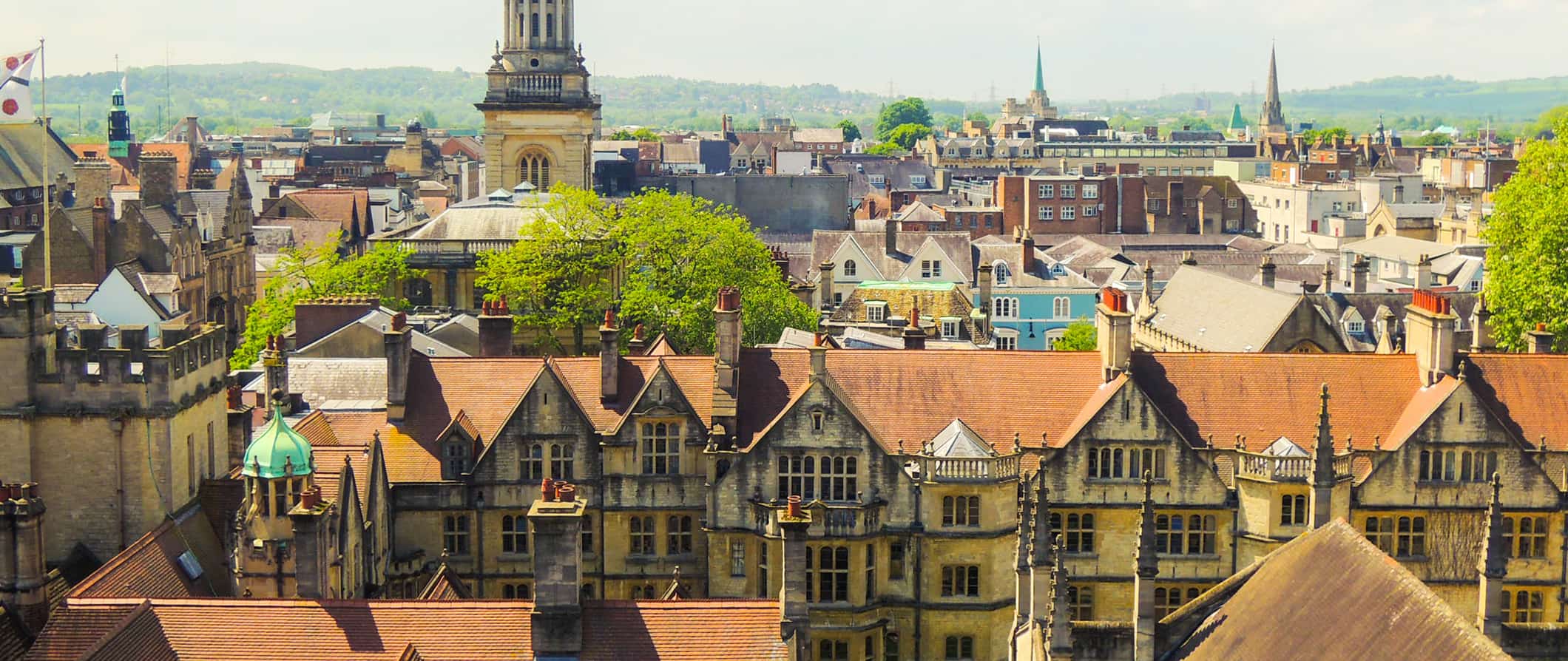
Oxford is a charming, historic city located just a short ride from London . The city is famed for its prestigious university, which is one of the oldest in the world (it was founded in the 11th century).
Oxford first earned fame in the Middle Ages as a hub for theological learning. It then expanded into medicine and law. Today, the university is home to over 24,000 students and you can study with the best and brightest in pretty much any field here.
While the city can feel stuffy and lacks the cut-loose university town feel that cities like Bristol have, visiting Oxford and seeing the old architecture more than makes up for it.
This Oxford travel guide can help you plan your trip, save money, and ensure you have an amazing visit to the historic city!
Table of Contents
- Things to See and Do
- Typical Costs
- Suggested Budget
- Money-Saving Tips
- Where to Stay
- How to Get Around
- How to Stay Safe
- Best Places to Book Your Trip
- Related Blogs on Oxford
Top 5 Things to See and Do in Oxford
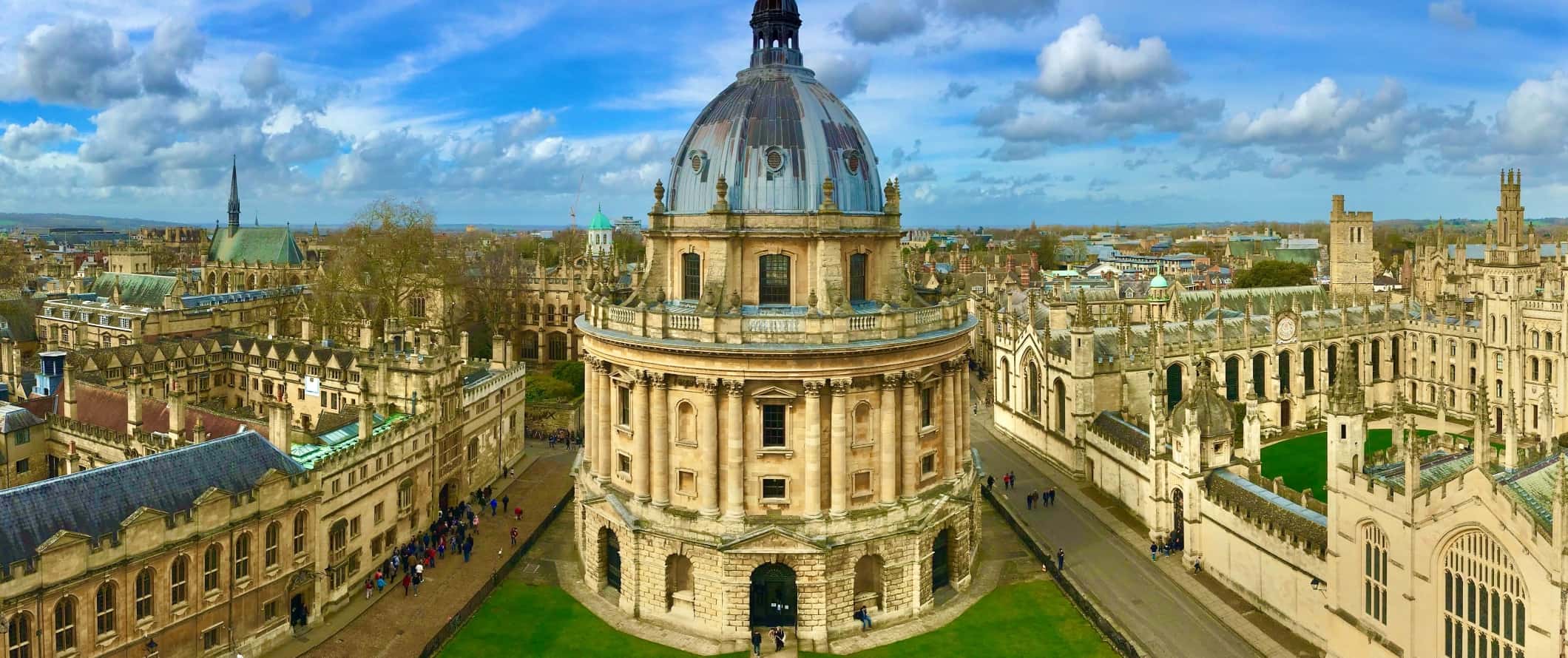
1. Tour Oxford
The University is the main attraction here. 24,000 students study at the famed college and on a visit to Oxford, you can tour fascinating museums, botanical gardens, and relax in the many pristine green spaces around campus. Bodleian Libraries offers guided tours of the university, including the inside of many historic buildings, which have been featured in countless movies over the years (including Harry Potter). They provide a look at university life, the history of the school, the architecture, and more. Tours last a couple of hours and cost 20 GBP.
2. Visit Balliol College
Founded in 1263 by wealthy landowner John I de Balliol, Balliol College is one of the oldest colleges in the University of Oxford. After Balliol’s death, his widow Dervorguilla continued to fund the founding of the college. This college was one of the first to create academic opportunities for women after only admitting men for 700 years and now the walls inside are lined with portraits of female graduates. Four Prime Ministers are alumni of Balliol college, as well as influential philosophers like Adam Smith and Aldous Huxley. It’s a prestigious college within Oxford and has a student body of about 400 who study Biology, English, History, Law, and more.
3. Admire South Park
Located in east Oxford, South Park is the largest park in Oxford, with free admission and a sweeping view of the city, including the university skyline. The land was privately owned until 1932 when the Oxford Preservation Trust acquired it and transformed it into a public park. The park is a favorite spot for photographers and from the highest point you’ll be able to see the towers of Oxford College. Within the park, you’ll find a 19th-century bridge and the Oxford Artisan Distillery. On a nice day, the park is filled with locals getting a tan, playing sports, and lounging. There are also a variety of events held there throughout the year including parades, firework displays, food festivals, and concerts.
4. Stroll under Hertford Bridge
This bridge is known as the ‘Bridge of Sighs’ because college students sigh under it on their way to take exams, and because it resembles the Bridge of Sighs in Venice. Hertford Bridge has an iconic design and connects the Old and New Quadrangles of Hertford College. It was completed in 1914 and serves as a convenient link between the two buildings. Visit the nearby Turf Tavern and commiserate with the students over a pint. You’ll be drinking in good company — Elizabeth Taylor, Stephen Hawking, and Margaret Thatcher have all paid a visit to Turf Tavern over the years.
5. Visit the Ashmolean Museum
Founded in 1683, this is Britain’s oldest public museum with a focus on art and archeology. It was originally constructed to house a “cabinet of curiosities” that Elias Ashmole donated to the University of Oxford in 1677. Ashmole’s collection was combined with older university treasures that supposedly included Guy Fawkes’ lantern and Jacob’s Coat of Many Colors. It recently went through a renovation in 2009 and displays Ancient Egyptian art, as well as an impressive Eastern Art collection. Today the museum is also working to preserve history, while simultaneously decolonizing the language and practices surrounding certain exhibits. Make sure to see the Amarna Princess Fresco and the Alfred Jewel before you leave. Admission is free.
Other Things to See and Do in Oxford
1. take a free walking tour.
One of the first things I do in a new city is take a free walking tour. It’s the best way to get the lay of the land and connect with a local guide. Footprints Tours are run by students and offer a solid introduction to the city. Just be sure to tip your guide at the end!
2. Admire the University of Oxford Botanical Gardens
When it opened in 1621, the botanical gardens here were the first of their kind in the UK. Today, the collection includes traditional English landscape designs and some of the UK’s oldest redwood trees. There are over 5,000 plant species here spread out over 4.5 acres. Admission is 6.30 GBP and pre-booking is highly recommended to guarantee entry.
3. Shop for snacks at the Covered Market
This historic 250-year-old market has dozens of coffee bars, restaurants, traditional butchers, fish merchants, and independent shops. You’ll be able to find everything from artisanal sausage to sushi. There are a lot of homemade meals served here and it’s the best place to do some cheap shopping for groceries in the city. In addition to food, there are also lots of local vendors selling handmade wares, including clothing, souvenirs, and jewelry.
4. Browse the Bodleian Library
As the main research library of the University of Oxford, the Bodleian is one of the oldest libraries in Europe and the second-largest library in the UK (after London’s British Library). Opened in 1602, its English Gothic architecture is gorgeous — so much so that it has served as a set for numerous films, including the first two Harry Potter films (its Divinity School, with its fan-vaulted ceiling and ornate decoration, was used as the Hogwarts hospital wing.) Entry is free and tours start at 9 GBP.
5. Go punting
Punting is a quirky and unique summer activity in Oxford. It’s essentially pushing a small boat around the River Thames or the River Cherwell with a pole. Punting season takes place from mid-March to mid-October when you can rent a boat or hire someone to take you. Rentals cost 30 GBP per hour and can fit up to 5 people.
6. Visit the Museum of Natural History
Established in 1850, this museum holds the University’s scientific collections of zoological, entomological, geological, paleontological, and mineralogical specimens. The exhibits are devoted to the history and diversity of life on Earth. One of their most famous exhibits is the Oxford Dodo. It has the only surviving dodo soft tissue remains in the world as well as a dodo skull (the dodo is an extinct flightless bird that was endemic to Mauritius). Admission is free.
7. Learn about medieval life at Oxford Castle Prison
Originally built in the 11th century, visiting this Norman castle prison (which was in operation until 1996) is like stepping back in time. You can descend into a 900-year-old crypt and then climb to the top of Saxon St George’s Tower for a 360-degree panoramic view of the surrounding area. You’ll also learn about the past residents of the prison and hear stories of their crimes, which range from murder to tyranny to religious rebellion. Admission is by guided tour only and costs 15.25 GBP.
8. Get lost in Blackwell’s Books
For the bookworm, this historic shop is a must. Opened in 1879, it’s home to the Norrington Room, which holds the Guinness Record for the largest bookselling room in the world. Named after Sir Arthur Norrington, a former president of Trinity College, the 10,000-square-foot (929-square-meter) basement is just one of Blackwell’s four floors of books.
9. Take a day trip to Blenheim Palace
This underrated attraction is just 8 miles (12 kilometers) outside of Oxford. Built in the early 18th century, it is the seat of the Dukes of Marlborough and a UNESCO World Heritage Site. Aside from the amazing Baroque architecture, the rooms are preserved with their original furniture and the grounds include a beautiful garden and a butterfly house. The entire palace is filled with statues, tapestries, priceless furniture and fine china, and huge oil paintings. Highlights include the room in which Winston Churchill was born and the Blenheim Tapestries, which are 10 large tapestries that commemorate the first duke’s conquests. Fun fact: this 17th-century palace is the only non-royal house in the UK that’s still allowed to be referred to as a palace. Admission to the palace, park, and gardens is 35.00 GBP.
10. Have a pint at the student pubs
A lot of Oxford’s energy comes from the huge student population. Around Oxford, you’ll find everything from small, quirky dive bars to romantic cocktail bars. The Eagle and Child pub on St Giles’ street is one of the most famous of Oxford’s pubs. The pub was a popular meeting spot for literary heavyweights like J.R.R. Tolkien and C.S. Lewis.
For more information on other cities in England, check out these guides:
- Bath Travel Guide
- Brighton Travel Guide
- Bristol Travel Guide
- Cambridge Travel Guide
- Liverpool Travel Guide
- London Travel Guide
- Manchester Travel Guide
Oxford Travel Costs
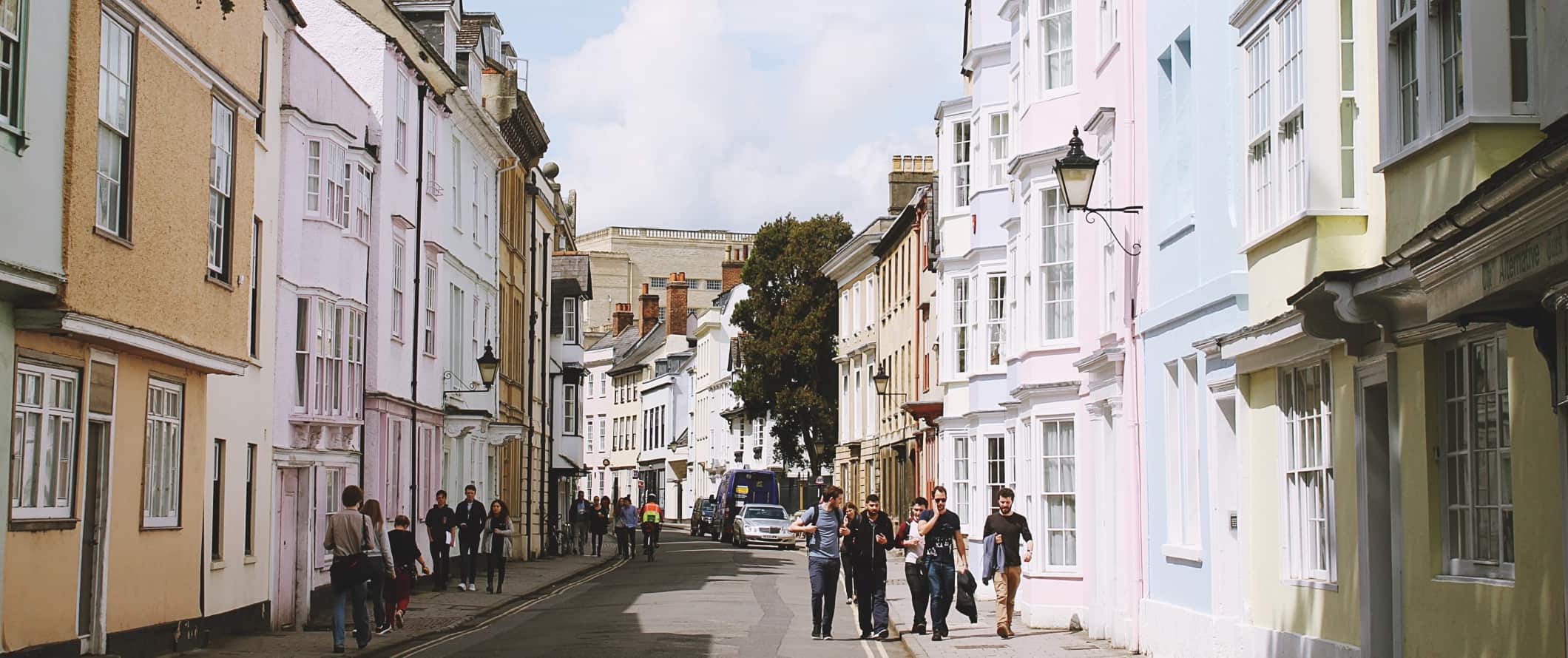
Hostel prices – There is currently just one hostel in Oxford and a bed in a dorm with 8 beds costs 35-40 GBP. Free Wi-Fi and self-catering facilities are included.
For those traveling with a tent, camping is available outside the city for 14 GBP per night. This gets you a basic tent plot without electricity.
Budget hotel prices – Budget hotels that include free Wi-Fi and breakfast start at around 80 GBP per night.
There are lots of Airbnb options available in Oxford. A private room costs at least 25-35 GBP per night, while an entire home/apartment starts around 60-90 GBP per night.
Avoid visiting during alumni weekend (which takes place in September) and the annual Oxford Boat Race, which draws 250,000 visitors around Easter. The city fills up fast and prices rise!
Food – While British cuisine has evolved in leaps and bounds due to immigration (and colonialism), it’s still very much a meat and potatoes country. Fish and chips remain a popular staple for both lunch and dinner while roasted and stewed meats, sausages, meat pies, and the quintessential Yorkshire pudding are all common options as well. Curry (and other Indian dishes, such as tikka masala), are super popular here too.
You can eat cheaply in Oxford if you stick to the cafes centered close to the university. Most give discounts to students, and whether you pick up a sandwich, salad, or bagel, you won’t pay more than 9 GBP for a meal (even if you aren’t a student).
You’ll find most student restaurants on and around George Street with small takeaway windows and stands selling everything from falafel to burritos. Fast food (think McDonald’s) costs around 7 GBP for a combo meal while a pint at a pub costs around 5 GBP.
A personal pizza can cost as little as 5.55 GBP while Chinese food costs around 8 GBP for a meal.
Expect to pay 12 GBP for a meal at an inexpensive casual restaurant, while a three-course meal at a mid-range restaurant costs 25 GBP per person, including a drink.
If you’re cooking your own food, a week’s worth of groceries costs around 40-60 GBP. The best places to buy cheap groceries are Lidl, Aldi, and Sainsbury’s.
Backpacking Oxford Suggested Budgets
If you’re backpacking Oxford, expect to spend about 70 GBP per day. This budget covers a hostel dorm, public transit, limiting your drinking, cooking your own meals, and doing mostly free attractions like hanging out in the parks and exploring Oxford University. If you plan on drinking, add 5-10 GBP per day to your budget.
A mid-range budget of 140 GBP per day covers staying in a private Airbnb room or private hostel room, eating out for most of your meals, taking the occasional taxi, enjoying a few drinks, and doing some paid activities like a guided tour of Oxford or going punting.
On a “luxury” budget of about 240 GBP or more per day, you can stay in a hotel, eat out anywhere you want, drink more, rent a car or bike to explore, and do as many tours and activities as you want. This is just the ground floor for luxury though. The sky is the limit!
You can use the chart below to get some idea of how much you need to budget daily, depending on your travel style. Keep in mind these are daily averages – some days you’ll spend more, some days you’ll spend less (you might spend less every day). We just want to give you a general idea of how to make your budget. Prices are in GBP.
Oxford Travel Guide: Money-Saving Tips
As one of the UK’s biggest university towns, Oxford has many free and low-cost things to do. With plenty of cheap pubs, student-focused restaurants, and lots of public spaces, cutting your costs and saving money is easy here. Here are my top ways to save money when you visit Oxford:
- Take a free walking tour – One of the best ways to learn about Oxford is with a free walking tour. Footprints Tours runs free walking tours that can introduce you to the city. Just be sure to tip your guide!
- Cook your own food – Like elsewhere in the UK, eating out in Oxford will destroy your budget. Cook as much as you can to save money.
- Eat cheap food – If you do plan on eating out, head out to neighborhoods outside the city center, where most of the students live. Stick to fast food and take-out joints for the cheapest options.
- Bike or walk everywhere – Oxford is not a large city so you can pretty much walk or bike everywhere. Skip the taxis and public transportation if you can.
- See the student theater – You can see cheap and cutting-edge student theater for a couple of pounds at the Burton Taylor Studio (near the bus station). It’s a small theater, but because it hosts student and independent productions, you can find a good deal on the ticket prices — even for last-minute tickets.
- Stay in an Oxford University dorm – When classes aren’t in session, it’s possible to stay in a dorm on the university campus. Exeter College is located in the center of the city and offers bed-and-breakfast-style accommodation in the dormitory. Rooms are only available during the Easter, summer, and winter vacations. (Not currently available due to COVID).
- Stay with a local – If you’re on a budget you’ll definitely want to try Couchsurfing . It’s a great way to cut costs while connecting to the local scene. Many students are away in the summer, however, so be sure to apply early.
- Bring a water bottle – The tap water here is safe to drink so bring a reusable water bottle to save money and reduce your plastic use. LifeStraw is my go-to brand as their bottles have built-in filters to ensure your water is always clean and safe.
Where to Stay in Oxford
Oxford currently has just one operational hostel. Fortunately, it’s a good one!
- Central Backpackers
How to Get Around Oxford
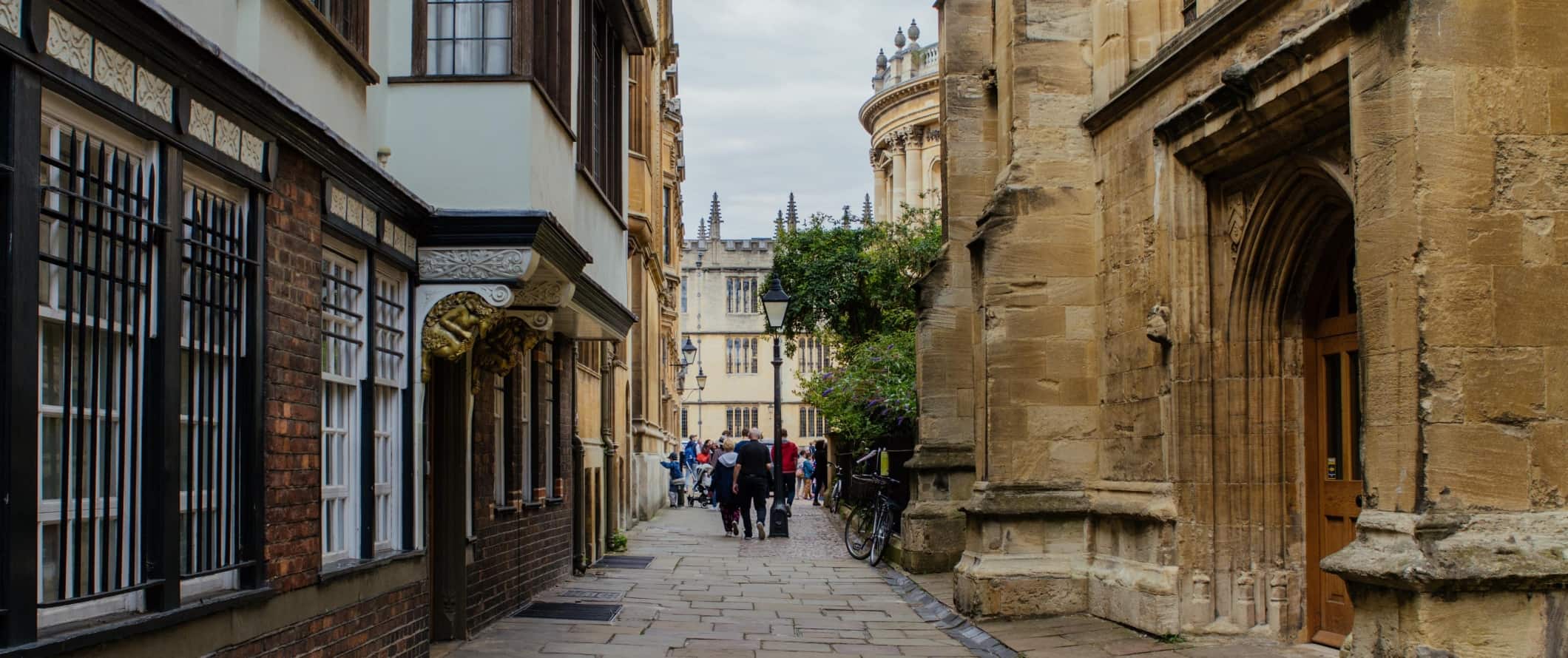
The easiest way to get around Oxford, especially if you stick to the central tourist areas, is by walking. Oxford is compact enough to get around on foot.
Bus – There is an extensive bus network through Oxford to get around if you choose to take public transportation. Three separate bus companies operate public transport in Oxford, with single trip fares as low as 1.20 GBP and day passes costing around 3.90 GBP.
Bicycle – Oxford is very bike-friendly if you stick to the bike paths. Pony Bikes and Donkey Bikes are dockless bike companies operating in Oxford, meaning the bikes can be picked up and left anywhere on the sidewalk. Download and rent directly from their respective apps.
If you’d rather pay for a full day of access, you can rent a bike from Summertown Cycles for as little as 18 GBP for your first day (6 GBP for each following day). Brompton Bike Hire offers folding bikes for 5 GBP per day, which you can pick up from the self-serve bike locker next to Oxford Station.
Taxi – Taxis cost around 4.60 GBP to start and 2.40 GBP per mile, but the price depends on the time of day and traffic. You can also use an app like MyTaxi to order your ride. Given how expensive they are, I wouldn’t take one unless absolutely necessary.
Uber – Uber is available in Oxford, but again, walking or cycling are the easiest way to get around in the compact city so I’d skip them if you can.
Car rental – Car rentals can be found for as little as 25 GBP per day for a multi-day rental. Keep in mind you’ll be driving on the left and that most cars have a manual transmission. Drivers need to be at least 21 and have had their license for at least one year.
When to Go to Oxford
Summer (July-August) is peak tourism season in Oxford, and temperatures are the warmest during this time — but rarely do they go above 22°C (72°F). It’s perfect weather for exploring, punting, and relaxing in the many parks.
Spring (May-June) and autumn (September-October) are also fantastic times to visit as the city is abuzz with student life and temperatures are mild. This is my favorite time to visit.
Winter lasts from December through February, and tourism crowds thin out dramatically during this time. Temperatures can dip below freezing, and prices are slightly lower. The days are cold and grey, however, so I wouldn’t suggest visiting during this time if you can avoid it.
How to Stay Safe in Oxford
Oxford is safe and the risk of violent crime is low. The biggest risk here is petty theft and pickpocketing, especially in the busy student pubs and clubs (however, it’s still quite rare).
Solo travelers, including female travelers, should generally feel safe here, however, the standard precautions apply (never leave your drink unattended at the bar, never walk home alone intoxicated, etc.).
If you’re partying in the student pubs, be aware of your surroundings and avoid dimly lit alleys and pathways when heading home. Pickpockets tend to work in teams, so stay alert and keep your valuables tucked away.
Scams here are rare, but if you’re worried about getting ripped off you can read about common travel scams to avoid here.
If you experience an emergency, dial 999 for assistance.
The most important piece of advice I can offer is to purchase good travel insurance. Travel insurance will protect you against illness, injury, theft, and cancellations. It’s comprehensive protection in case anything goes wrong. I never go on a trip without it as I’ve had to use it many times in the past. You can use the widget below to find the policy right for you:
Oxford Travel Guide: The Best Booking Resources
These are my favorite companies to use when I travel. They consistently have the best deals, offer world-class customer service and great value, and overall, are better than their competitors. They are the companies I use the most and are always the starting point in my search for travel deals.
- Skyscanner – Skyscanner is my favorite flight search engine. They search small websites and budget airlines that larger search sites tend to miss. They are hands down the number one place to start.
- Hostelworld – This is the best hostel accommodation site out there with the largest inventory, best search interface, and widest availability.
- Booking.com – The best all around booking site that constantly provides the cheapest and lowest rates. They have the widest selection of budget accommodation. In all my tests, they’ve always had the cheapest rates out of all the booking websites.
- HostelPass – This new card gives you up to 20% off hostels throughout Europe. It’s a great way to save money. They’re constantly adding new hostels too. I’ve always wanted something like this and glad it finallt exists.
- Get Your Guide – Get Your Guide is a huge online marketplace for tours and excursions. They have tons of tour options available in cities all around the world, including everything from cooking classes, walking tours, street art lessons, and more!
- The Man in Seat 61 – This website is the ultimate guide to train travel anywhere in the world. They have the most comprehensive information on routes, times, prices, and train conditions. If you are planning a long train journey or some epic train trip, consult this site.
- Rome2Rio – This website allows you to see how to get from point A to point B the best and cheapest way possible. It will give you all the bus, train, plane, or boat routes that can get you there as well as how much they cost.
- FlixBus – Flixbus has routes between 20 European countries with prices starting as low 5 EUR! Their buses include WiFi, electrical outlets, a free checked bag.
- SafetyWing – Safety Wing offers convenient and affordable plans tailored to digital nomads and long-term travelers. They have cheap monthly plans, great customer service, and an easy-to-use claims process that makes it perfect for those on the road.
- LifeStraw – My go-to company for reusable water bottles with built-in filters so you can ensure your drinking water is always clean and safe.
- Unbound Merino – They make lightweight, durable, easy-to-clean travel clothing.
- Top Travel Credit Cards – Points are the best way to cut down travel expenses. Here’s my favorite point earning credit cards so you can get free travel!
- BlaBlaCar – BlaBlaCar is a ridesharing website that lets you share rides with vetted local drivers by pitching in for gas. You simply request a seat, they approve, and off you go! It’s a cheaper and more interesting way to travel than by bus or train!
Oxford Travel Guide: Related Articles
Want more info? Check out all the articles I’ve written on backpacking/traveling England and continue planning your trip:

The 14 Best Things to Do in Bristol
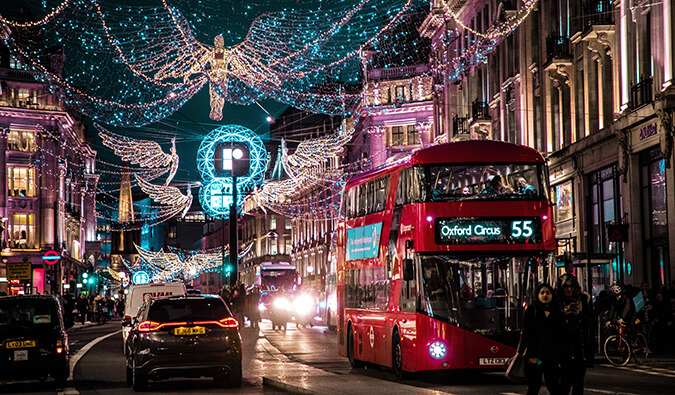
Where to Stay in London: The Best Neighborhoods for Your Visit
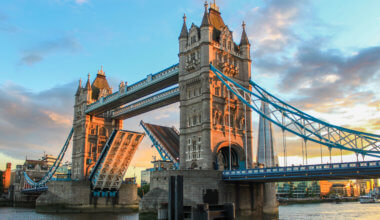
The 8 Best Hostels in London
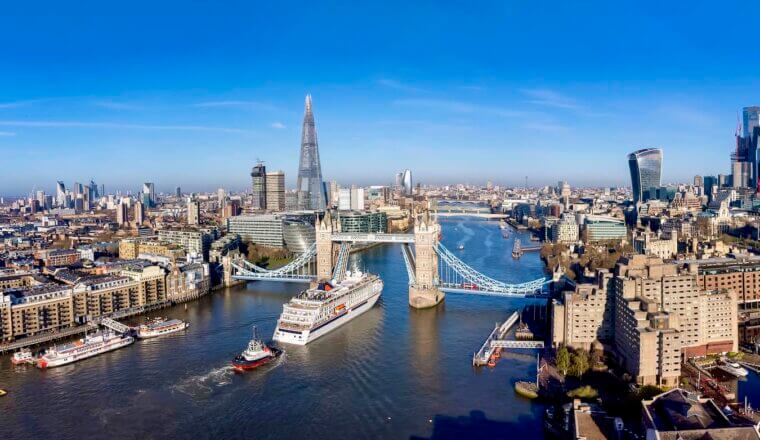
How to Spend a Week in London
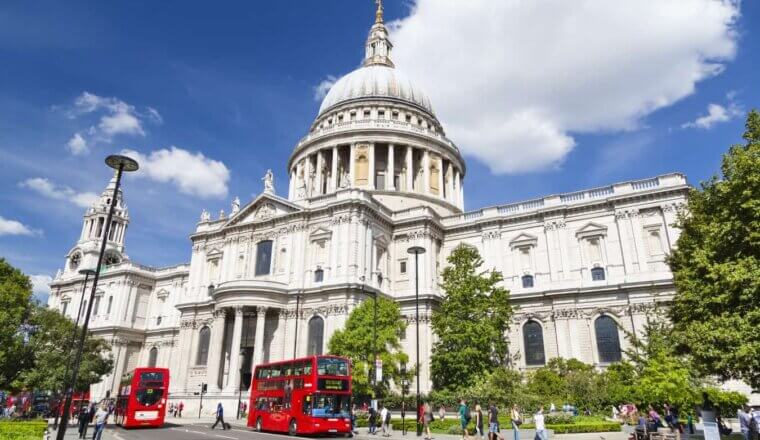
The 9 Best Walking Tour Companies in London
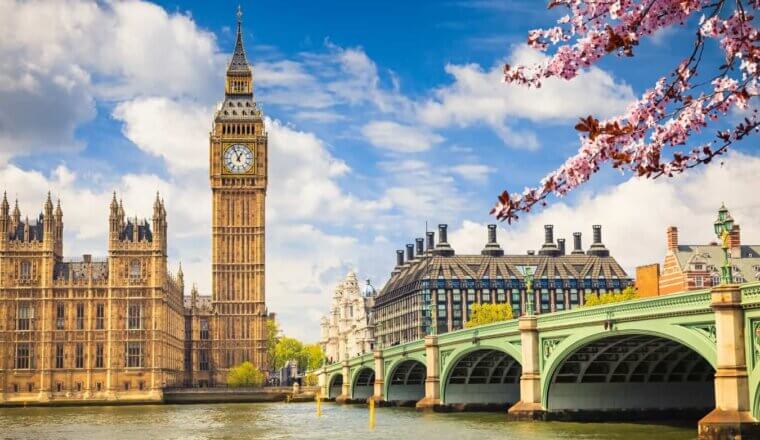
70+ Free Things to Do in London
Get my best stuff sent straight to you, pin it on pinterest.
- Where To Stay
- Transportation
- Booking Resources
- Related Blogs

OXFORD JOURNEYS FAQs
For over 20 years, we have been proud to offer alumni the chance to explore the world through our Oxford Journeys travel programme. In the company of expert trip scholars, intrepid alumni have followed the Silk Road, gone behind the scenes at CERN, witnessed solar eclipses and visited the world’s leading museums. In more recent times, we have had great success with our online Armchair Travel series, bringing academics into your living rooms, taking thousands of you on virtual travel experiences.
However, as we are all aware, the last few years have brought a great period of change that has required us to review our future priorities within the Alumni Office. As a result, we have made the decision to put our travel programme on hold from the end of 2022.
If you would like to continue to travel with one of our tour operator partners in the future, please sign up to their mailing lists.

Journey around the world from the comfort of your living room
From 2020, in collaboration with our travel operators, we have hosted a number of exciting virtual lectures led by our tour leaders on their area of expertise. These have included the wildlife of South and Central America, a interactive session on the Chilean solar eclipse and how Iceland was formed by volcanic eruptions.
CATCH UP NOW
When did you discontinue the Oxford Journeys travel programme?
We discontinued the programme at the end of 2022 and we will not be confirming any new tours for the foreseeable future.
Are Cambridge cancelling their travel programme too?
No, Cambridge are continuing with their travel programme. If you are part of the Cambridge alumni community, you can find out more about their programme here .
Why have you reached this decision?
The COVID-19 pandemic brought a great period of change and forced us to reassess our priorities within the Alumni Office. The way in which we engage with our alumni is now very different and we must adapt to ensure that we continue to provide the resources and opportunities that support our growing alumni community. Unfortunately, after much deliberation, it was felt that the travel programme could no longer be maintained.
How do I contact the tour operators to sign up to their mailing lists?
Distant Horizons: [email protected]
Hurtigruten: [email protected]
Indus Experiences: [email protected]
Last Frontiers: [email protected]
Temple World: [email protected]
Will there be a replacement travel programme?
It is unlikely that we will restart the travel programme within the next few years. The travel industry is currently in a state of transformation, not only from the effects of the pandemic but also due to growing concerns about environmental issues and wider ethical discussions about the impact of tourism. We will continue to keep up to date with specialist travel programmes for consideration in the future.
Will you still be running the Armchair Travel events?
Yes. The Armchair Travel events have been massively popular, and we will continue to offer these as part of our ongoing online events series. If you would like to receive updates about these events, please join the mailing list .
Will I still receive anything from you if I have signed up for travel emails?
You will continue to receive Alumni Office e-newsletters featuring the latest news from the University, alumni stories, events notifications, and more.
Who do I contact if I have a question?
Please email [email protected] and we will get back to you as soon as possible.

Things to do in Oxford: 24 Must-See Oxford Attractions

Insider Oxford is supported by readers like you. If you buy something through the links on the website, I may earn a small commission. Cheers! Learn More
The city of dreaming spires, Oxford is a beautiful city packed with places to see. Looking for the best things to do in Oxford? Here’s where to start.
We might be biased, but Oxford is one of our favourite places in the UK – not least because we spent three years at university there.
Personal bias aside, there are few places in the UK or Europe that can rival the city’s beautiful architecture and important history.

Whether you are visiting Oxford for the first or fiftieth time, there’s always something new to discover – some secret spot to find.
Check out the best things to do in Oxford – well-known spots and hidden treasures. Ready to explore? Let’s go.
PS – Only in Oxford for a short time? Read my guide to 24 Hours in Oxford.
What Are The Best Things to do in Oxford? Our Top Five Picks
The bodleian library.

The Bodleian Library is one of the oldest and biggest libraries in Britain.
The library (which is actually a series of interconnected libraries dotted throughout Oxford that are collectively referred to as the Bodleian Libraries) has an impressive history – some of its buildings have been libraries since the Middle Ages.
All very well and good, but it’s the library’s architecture that is really going to blow you away. From the gorgeous domed Radcliffe Camera to the fortress-like Old Bodleian Library, the “Bod” boasts some of the most striking buildings in Oxford.
If you only have time to visit two, make them the Radcliffe Camera and the Old Library.
The Bod’s interiors are no less impressive – it’s a working library so large sections of the library are off-limits unless you book onto a tour , which we highly recommend.
Even if you don’t – pay to enter The Divinity School, not only is it one of the Bodleian’s most ornately-decorated rooms, it also pops up in the Harry Potter films.
🦉 Check out these guided tour of Harry Potter filming locations in Oxford or read my guide to self-guided tour of Harry Potter locations .
The Radcliffe Camera

The building that launched a million camera clicks. The Radcliffe Camera is an iconic piece of Oxford architecture and sits at the heart of the city of dreaming spires. Ask anyone for the top places to go in Oxford and it will be there, right at the top of the list.
The Rad Cam, as its fondly nicknamed, was built in the 18th century – so it’s actually pretty modern by Oxford standards. Today, it functions as one of the main reading rooms of the Bodleian Library as well as the home of several of the library’s collections.
As with other parts of the Bodleian, it’s a functional library and off-limits unless you book onto a tour.
Want to see the very best of Oxford’s landmarks? Book onto a walking tour like this one to ensure you don’t miss a spot.
The Ashmolean Museum

The Ashmolean is Oxford’s flagship museum and one of the top Oxford sights. Widely recognised as the first modern museum in the world, the Ashmolean has been the university’s historical and archaeological collections since 1683.
Though it’s no longer in its original building (it’s grown way too big for them), The Ashmolean remains a fascinating walk through the history of different cultures from around the world.
The eclectic collection spans a broad range of artefacts and exhibits. Want to see larger-than-life casts of Greek and Roman sculptures? They’ve got you covered. How about ceramics and textiles from the Middle East? Same.
The Ashmolean underwent a huge renovation in 2009. The tart-up did it a world of good – collections are thoughtfully and interestingly presented.
Allot at least a few hours to explore. Plus, when you’re finished, spend some time in their rooftop cafe – one of the best cafes in Oxford .
Read More: The Best Museums in Oxford
Punting on the Cherwell

Going punting, with a picnic in tow and perhaps a cheeky concoction of Pimms and Lemonade, is one of the best things to do in Oxford (during the summer months).
Two rivers run through Oxford – the Isis (Thames) and the Cherwell. You can go punting on both—punting is that slightly weird form of boating where you propel the boat with a metal pole—on both.
We recommend the Cherwell for several reasons. First of all, it’s way prettier than the Isis —and obviously, that’s a very important thing.
➥ Book this student-guided punting tour on the Cherwell .
Secondly, if you punt away from the city centre, you slowly leave the crowds behind until it’s just you, your crew and the (sometimes scary) swans that will happily steal your lunch.
Start at Magdalen Bridge, punt upriver to the Victoria Arms in Marston to disembark for a leisurely lunch before floating downstream to where you began. Perfection.
➥ If punting sounds too scary, hop on a sightseeing boat tour like this one to explore Oxford from the water.
The Pitt Rivers Museum

The Pitt Rivers Museum is one of Oxford’s quirkier and most interesting museums.
Centred around the collection of Augustus Henry Lane-Fox Pitt Rivers, the museum opened in 1887 to showcase its anthropological treasures from around the world.
The Pitt Rivers features over half a million artifacts, which together tell the story of the history of man.
Don’t judge a book by its cover – this really is one of the top things to do in Oxford. Walking around the well-presented exhibits, which are ordered by type and by date, is a peek into faraway cultures.
Admission is free but there is a suggested donation of £5.
Oxford Sightseeing Spots – Must-Visit Oxford University Colleges
Christ church college.

If you only have time to visit one of the University of Oxford’s 38 colleges while you are in town, add Christ Church to your Oxford to do list.
Christ Church’s important history and beautiful architecture make a visit hands down one of the best places to visit in Oxford.
The college was founded almost 500 years ago, by Cardinal Wolsey – until he fell from favour and the college was pinched by King Henry VIII (he of divorced, beheaded, died fame… ).
Over the years, this connection with the Royal family continued. Christ Church was even the seat of King Charles I’s royal parliament during the brief four year period when Oxford was England’s capital during the Civil War.
Fast forward to the present day and you’ll find one of Oxford’s most magnificent colleges and definitely the only one to have its own cathedral.
Start with the vast Tom Quad, flanked by the Christopher Wren-designed Tom Tower then make your way to the dining room – one of Oxford’s unforgettable Harry Potter filming locations.
➥ Take this tour of Oxford University with Christ Church option .
Magdalen College

There aren’t many Oxford colleges that can say they have their own deer park within their grounds… but then Magdalen isn’t like many other Oxford colleges.
First up, Magdalen (pronounced maudlin ) is one of the richest colleges within the university (perhaps that explains the deer park).
Secondly, it’s just so very beautiful that you shouldn’t miss it on your list of places to visit in Oxford.
Like many Oxford colleges, you have to pay to enter. Once you do, take a peek at the cloisters, chapel and hall and, of course, take a turn around the deer park. It would be rude not to.
Keble College

Find yourself getting a bit desensitised to all that handsome sandstone? It’s OK, we’ve all been there.
Enter the Victorian Gothic masterpiece that is Keble College.
We are flabbergasted that Keble doesn’t make it onto many lists of Oxford tourist attractions – there are several reasons why you should add it to your Oxford sightseeing itinerary.
Keble’s crazy architecture – largely redbrick with contrasting white, black and golden patterns – was always meant to make a statement. Think it’s safe to say the architect William Butterfield definitely succeeded in that mission.
What’s more, Keble has a chapel striking enough to stop you in your tracks. Once inside, don’t miss the world-famous Light of the World painting by Holman Hunt – it’s secreted in a small room to the side of the chapel.
As if that’s not enough, the college’s hall is the longest in Oxford – not to mention its most impressive – it makes Christ Church’s look teeny by comparison!
Cool Things to See in Oxford
Sheldonian theatre.

Situated next to the Old Bodleian Library, you’re bound to notice the Sheldonian Theatre – it’s the Neoclassical style D-shaped building that projects out onto Broad Street. Wondering what it is?
The Sheldonian is the official ceremonial hall of Oxford University. As the place where you matriculate (are formally enrolled at the university) and graduate, it holds a special place in students’ hearts.
The Sheldonian was the first significant architectural project of Christopher Wren (who then went on to design some of the most important landmarks in London after the Great Fire – including St Paul’s Cathedral).
If you have time, book a Sheldonian tour , which explores the University’s history and gives you a chance to see the theatre’s interior – dominated by the ceiling fresco “Truth descending on the arts and sciences to expel ignorance from the university”.
University Church of St Mary’s

St Mary’s Church forms one side of Radcliffe Square – clustered by All Soul’s College, Brasenose College, the Old Bodleian and the Radcliffe Camera – it’s one of the top places to see in Oxford.
While the church itself is worth a visit, we’ll let you in on a little secret – the tower should be on your itinerary of things to see in Oxford. For a small fee, you can climb to the top of St Mary’s Tower for the best views of the city.
Now, we won’t lie… climbing to the top of medieval churches strikes fear into our hearts, favourite thing to do and this one is no exception. The steep winding stairs that take you to the top of the tower are vaguely terrifying, particularly on the way down.

That said, the views are absolutely spectacular – you can walk around all four sides for four completely different but equally mesmerising panoramas.
Worth the terror and the sore legs? Totally.

The Bridge of Sighs

Another of Oxford’s sights, the Bridge of Sighs may look vaguely familiar. That’s because it supposedly looks a bit like the famous bridge of the same name in Venice.
The bridge connects two parts of Hertford College – but really much of its appeal is its quirky appearance.
PS, the entrance to the Turf Tavern – one of Oxford’s oldest and prettiest pubs – is tucked down the alley to the left of the bridge if you’re walking away from the Bodleian Library.
➥ Take this tour of that makes a stop at the Bridge of Sighs .
Oxford Castle & Prison
Had enough of historical sites yet? Tough luck if the answer’s yes.
The Oxford Castle & Prison is a medieval Norman castle that’s been transformed into a historical site, hotel and entertainment complex in one.
It’s not as bizarre as it sounds – the hotel (Malmaison) has pimped up the former cells into comfortable rooms, while the bars and eateries are worth a pit stop.
More interested in the actual castle than its contemporary fripperies? You can take a guided tour to learn about the history of the building – which includes a 900-year-old crypt.
Ignoring the fact that the tours are led by costumed characters (shudder) and it’s actually an interesting way to learn about a side of Oxford that has nothing to do with the university.
➥ Book a guided tour of Oxford Castle and Prison .
Cool Things to do in Oxford – Exploring Cultural Oxford
The oxford university museum of natural history.

Housed in the same building as the Pitt Rivers Museum, the Oxford Museum of Natural History is one of the more surprising things to do in Oxford.
The building is impressive enough – its light-filled interior is one of my favourites. Add to that a large collection of zoological and geological specimens and you’ve got an Oxford sightseeing must.
You can’t help but notice the huge dinosaur skeletons that dominate the museum’s collection. Fossils and replicas give you an up-close-and-personal look at the different species on display.
Other highlights include the Oxford Dodo – one of the few of its kind in the world and said to be the inspiration for Lewis Carroll’s character in Alice in Wonderland.
Modern Art Oxford

We’ll level with you – we personally think the exhibitions in Modern Art Oxford can be a bit hit and miss. But that’s standard for small galleries who show innovative exhibitions.
Don’t let it put you off. This small gallery is one of the more unusual things to do in Oxford but is well worth a visit.
Where else can you see exhibitions that aren’t afraid to challenge you or question the status quo – and for free too? When it’s good, it’s really good.
Hunt Out Oxford’s Harry Potter Filming Locations

Harry Potter geeks (us included) will want to check out the famous filming locations dotted across Oxford.
Even if you’re a little more lukewarm about Harry Potter (we’re not sure – can we even be friends?), visiting the filming locations is still an interesting way of seeing different parts of Oxford you might have found otherwise.

The atmospheric New College Cloisters are the perfect example – most people have no reason to hunt them out.
However, when we did (they double up as the spot where Mad Eye Moody turns Draco into a ferret), we found one of Oxford’s hidden treasures and a new favourite spot.
🦉 Check out these highly recommended tours of Harry Potter locations .
Discover Literary Oxford

Given its strong literary heritage, it’s perhaps no surprise that Oxford has more than its fair share of literary spots. Book-lovers can lose themselves in a world of finding the real life inspirations and locations from their favourite books.
Take Alice in Wonderland for example – Lewis Carroll (real name Charles Dodgson) was a scholar at Christ Church. Influences as diverse as the Dodo in the Oxford Museum of Natural History and the door into Christ Church’s cathedral garden find their way into the famous books.
Not forgetting the fantastical Narnia series, written by the well-known Fellow of Magdalen College, C.S Lewis.
Although there are traces of Narnia throughout Oxford, the best-known is the wooden door in the alley that runs down the side of St Mary’s Church.
Look closely and you’ll see that the door is flanked by two fauns, and has a lion on its centrepiece. It’s said to be the wardrobe door the book’s characters step through to reach Narnia…
📚 Take a this private C.S. Lewis and J.R.R. Tolkien walking tour of Oxford .
Unusual things to do in Oxford
Visit the story museum.

When it comes to quirky Oxford things to do, The Story Museum is an often overlooked spot. This family-friendly spot celebrates the art of stories and story-telling, and the positive effects this has on people’s lives.
Head through the Whispering Wood and the Enchanted Library as stories from the city are told in an immersive and engaging way.
You can also hop onto the magical Story Craft, which allows you to fly through thousands of years of Oxford history – delving deeper into ancient myths and famous literature.
Take a Spooky Ghost Tour
Ready to get spooked? Maybe it’s just us, but we think that one of the best ways to explore a city is to take a creepy ghost tour at night – this one is led by author of Haunted Oxford , Rob Walters.
You’ll begin your journey on the corner of Turl Street – a spot that was once the city ditch and witness to terrible murders and persecution. But that’s only the beginning of your ghost-chasing evening.
From there, your guide will lead you through the creepiest parts of the city, passing sites such as the University and Bridge of Sighs as you go.
👻 Book the official “Haunted Oxford” ghost tour .
Best Things to do in Oxford – Food & Drink
Afternoon tea at the grand cafe.
Afternoon tea is a quintessentially British pastime – one that Oxford happens to do very well. The Grand Cafe is the place for afternoon tea in Oxford.
It stands on the site of England’s oldest coffee house – times and tastes may have changed but The Grand will always dish up fluffy, hot scones, huge slabs of cake and the requisite teas and coffees.
A cream tea, with two (very large) scones, accompanied by lashings of jam and clotted cream (which should be applied to the scone in that order) and a hot beverage of your choice is £10.95.
An afternoon tea, which features the above, with an additional selection of finger sandwiches and petit fours is just under £20. Go hungry.
Read More: Unmissable Afternoon Teas in Oxford
Explore Oxford’s Cool Cocktail Bars

It would be a huge mistake to visit the city and not spend some time in Oxford’s brilliant cocktail bars .
In particular, Jericho , in the north of the city is a good place to find a cocktail bar or two.
Raoul’s has a reputation for serving up the best. Nearby, The Duke of Cambridge is a brilliant choice (they also just so happen to have a brilliant happy hour).
Freud’s boasts the most impressive setting – it’s located in an old Neoclassical-style church, but cocktails are a bit lacklustre compared to its nearby competitors.
When it comes to cocktails with a view, it should come as no surprise that Oxford has a few contenders – The Varsity Club looks straight out over central Oxford, while The Alchemist offers a different view from atop the Westgate Centre.
Still not enough? Strike out along Cowley Road for more options.
Read more: The Best Cocktail Bars in Oxford
The Eagle & Child
Any Tolkien or C.S Lewis fans in the house? You’ll want to add The Eagle & Child to your things to see and do in the Oxford itinerary.
What may look like a relatively standard pub at first glance has an intriguing history.
It’s best known as the former meeting place of “The Inklings”, a group of writers that included – you guessed it – Tolkien and Lewis.
The group met here on a weekly basis to discuss and critique each other’s work – maybe if you sit in the same spot, a little of their literary genius will rub off on you…
Oxford Historic Pub Crawl

Whether tucked away on hidden alleys or sat in plain view – Oxford has more than its fair share of historic pubs . We’re yet to find another British city with so many gorgeous old boozers and a mini pub crawl between them is a fun thing to do in Oxford (for adults).
Start with one of the oldest – The Bear Inn. Hidden in the maze of streets between Christchurch and the High Street, there’s been a pub in this spot since 1242 – though its current incarnation dates from the 17th century.
Move on to our favourite, The Turf Tavern, thought to have opened in the 15th century. It’s a bit hard to find, but when you do, you will find a quaint old building that’s straight out of the history books and some of Oxford’s best pints.
From there, it’s a short hop to The Lamb & Flag. Perched across the road from The Eagle & Child, the Inklings also used The Lamb & Flag as one of their meeting spots.
It’s also rumoured that Thomas Hardy wrote much of Jude the Obscure sitting in the pub. Cheers to that.
Read More: Historic Pubs and Cool Drinking Dens in Oxford
The Covered Market

The 18th-century Covered Market sits in the heart of Oxford. Over 40 traders have stalls and shops within the market – pop in for a browse and you’re never sure what you’ll come out with.
The best way to explore is to just have a wander around, but there are a couple of places you shouldn’t miss while you’re there.
Coffee lovers should make a beeline for Colombia Coffee Roasters, an independent coffee shop who sources their beans from their own family farm in Colombia.
Hop into Ben’s Cookies next door for one (or three) of their indulgently gooey and delicious cookies or iScream for a tasty gelato.
Read More: The Best Cafes in Oxford
Best Places to Visit in Oxford – Parks and Green Spaces
Christ church meadow.

Those wondering what to see in Oxford will be delighted to find out that the city has a surprising number of green spaces – including Christ Church Meadow.
Sandwiched between the River Isis (the stretch of the river Thames that runs through Oxford), the river Cherwell and Christ Church College, the Meadow is one of the best places to visit in Oxford on a warm summer’s day.
Rowers heave boats onto the river from the boat houses that line the Isis – plump yourself down on the grass and watch as they skull their way along the river, or have a picnic under the shade of a tree – just watch out for the cows.
Port Meadow (and a Few Gorgeous Pubs)

Much beloved by locals but largely overlooked by tourists, Port Meadow is an extensive meadow in the north of Oxford, above the Jericho area of town.
The meadow is part of an ancient patch of grazing land that dates back over 4,000 years. You’ll still find cows and horses roaming free on the meadow today.
While it’s nice enough for a stroll or a picnic on the banks of the Thames, it doesn’t hurt that the meadow leads to two of Oxford’s prettiest pubs – The Perch and The Trout.
The Perch – a 17th-century country inn – is closer and a lovely spot for a quiet drink or two.
It’s a bit of a walk to The Trout but the walk takes you through bucolic scenes that have remained largely unchanged for millennia.
What’s more, the pub serves great food AND has peacocks roaming freely in its gardens.
Oxford Botanic Gardens & Arboretum

Oxford’s Botanic Gardens is the oldest botanic garden in the UK and one of the oldest in the world. They’re the peaceful escape in the heart of the city – bursting with over 6,000 plant species that are organised into a series of collections.
It’s educational, but the real joy is simply appreciating the dramatic plantings, which somehow look good at any time of the year.
The glasshouses are our favourite part of the garden – a stroll through them transports you to different parts of the world, where tropical palms grow taller than houses, or where desert cacti burst into rare blooms.
Any fans of Philip Pullman’s His Dark Materials trilogy should also keep an eye out for a bench overlooking the Isis, which is said to be the place where the main characters Lyra and Will return year after year in their respective worlds.
Fans have etched tribute messages into the bench – you will know it when you see it.
There we are – the top things to do in Oxford. Are you ready to explore?
Things to do in Oxford: Tips for Planning Your Trip
- Oxford makes the perfect day trip from London – but we always advise to spend more time there if you can. We suggest three days to explore the city at a leisurely pace.
- Don’t bother with the hop-on-hop-off sightseeing bus. The city centre is surprisingly small and very walkable. So many of the best things to do in Oxford are clustered in a small area that taking the bus just isn’t worth it.
- There are millions of tours of Oxford and not all of them are created equal. We’ve used GetYourGuide for tours in the past as they are very reliable. The tours offered by the Bodleian Library, the Sheldonian and The Ashmolean are all very interesting.
- Wear comfortable walking shoes. We mean it. Those cobbles will destroy your feet if you venture out in heels.
- We’ve only covered central Oxford as this is what most visitors focus on – but there’s a lot more to discover down the Cowley and Iffley Roads if you have a little more time.
Oxford Attractions: Map
Love this? Save and share on Pinterest!
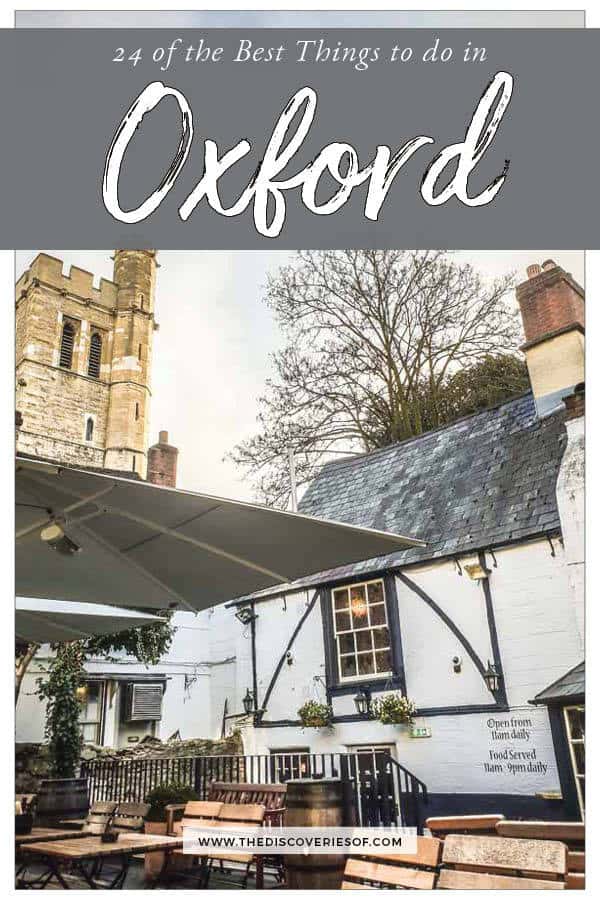
Similar Posts
11 most beautiful libraries in oxford.

Keble College, Oxford – A Visitor’s Guide

Best Areas for Shopping in Oxford

Rock Out! Where to See Live Music in Oxford

Radcliffe Camera: Everything You Need to Know About Oxford’s Famous Library

The Divinity School, Oxford – History and Harry Potter in the Bodleian Library
Travel Policy
This policy has been developed as part of the wider environmental sustainability strategy and applies to all business travel from 1 august 2022..
While the University recognises that some travel is necessary for learning, teaching, and research, this policy aims to reduce the environmental impact of travel. The policy was developed after extensive consultation and a pilot rollout in five departments.
It includes
- encouraging virtual alternatives to travel
- encouraging a shift from flights to rail
- eliminating 20% of flights by 2024/25
- charging a flight levy on University business travel
Money raised through the flight levy is allocated to the Oxford Sustainability Fund to finance the implementation of the Environmental Sustainability Strategy. We will use offsetting from 2034 onwards to offset the University’s residual carbon emissions and biodiversity impact and achieve the strategy’s 2035 targets. This approach of prioritising reducing emissions to minimise offsetting is in line with the Oxford Offsetting Principles .
Below you will find a summary of the policy. The full policy can be downloaded from this page.
Review our policy
DOWNLOAD PDF
Sustainable Travel team
+44 (0)1865 6 14814
Related links
- Environmental Sustainability Strategy
- Travelling for work

Oxford Travel Guide (Practical tips, itinerary + map)
By: Author Tracy Collins
Posted on Last updated: December 6, 2022
Our Oxford Travel Guide includes recommended places to visit and things to do, accommodation options, tips and more for one of the most famous university cities in the world. Everything you need to plan your visit and essential reading for any visitor to Oxford!
Plan your visit to Oxford
Located only 60 miles (90 km) north-west of London in the county of Oxfordshire is the city of Oxford, home to arguably the world’s most famous and prestigious university.
Nicknamed the ‘City of Dreaming Spires” Oxford is a compact city with many of its main sights situated close to each other.
Oxford is one of England’s most beautiful cities and a popular day trip from London easily reached by train from the capital. Plan to spend the day exploring the University’s famous colleges, magnificent medieval buildings & museums.
What you will find in this complete Oxford Travel Guide
Map of Oxford
When is the best time of year to visit oxford, how many days do you need in oxford, what is the best way to explore oxford, which city should i visit – oxford or cambridge, by train from london, by car from london, take a tour from london to oxford, attractions and things to do in oxford and the surrounding area, accommodation in oxford, tickets, tours & attractions in oxford, best day trips from oxford, books to read before visiting oxford, enjoy your visit to oxford.

Oxford travel guide – Visiting Oxford FAQ’s
Oxford is a beautiful destination whatever time of year you plan to visit.
The summer months are busy with visitors from the UK and abroad flocking to explore the sights.
If you plan to stay in Oxford we recommend booking accommodation in advance during peak season.
During the winter Oxford is quieter but a truly magical experience when frost or snow covers the city.
Spring heralds in blossom-covered trees and colourful flowers across the city whilst visitors during the Autumn will be greeted by multi-coloured leaf displays of golds and reds. Oxford is simply stunning whenever you choose to visit.
It is possible to see the main sights and attractions of Oxford in a day but if you are an art or history lover we recommend 2 days to fully explore the cities museums and colleges.
Oxford is also a great base for further exploration of Oxfordshire and the Cotswolds by car or tour.
The historic centre of Oxford is easy to explore on foot. Alternatively consider buying tickets on the Oxford hop-on-hop-off bus tour and enjoy unlimited hop-on hop-off for 24 or 48 hours.
I would say visit both if you can fit them into your itinerary. Both cities have their own unique charms.
Oxford is the larger city and has lots of things to see and do so could easily fill 2 days if you wish to explore all its colleges and museums. It is also the perfect destination to visit if you are considering a road trip to the Cotswolds. If you are a Harry Potter fan head to Oxford where you will find several film locations used in a number of the movies.
Cambridge is a smaller city than Oxford. There is less to do and see but it is a beautiful and easy city to explore in a day and well worth visiting. Enjoy a stroll along the river Cam, try punting, and enjoy the cities stunning architecture. Read more about Cambridge in my Cambridge Travel Guide .
As I have mentioned both cities are doable day trips from London by train. If you only have one day and want to see both cities take this Oxford & Cambridge Day Tour from London .

What is the best way to travel to Oxford from London?
Oxford is an easy day trip from London but with so much to do and see it is worth considering spending a few days there to fully appreciate the city.
It is also the perfect base for exploring the beautiful Cotswolds . The UNESCO World Heritage listed Blenheim Palace is also close to Oxford.
For timetables and tickets, we recommend the trainline . Take the train to Oxford for the day or incorporate it into your UK train travel itinerary.
Tip – If this is your first time catching a train in the UK read our complete guide to UK train travel which includes all the information you need to know to make travelling around the UK by rail a relaxing and stress-free experience.
- Distance from London: 52 miles / 83 km
- Time taken by train: 1 hour
- Leave from: London Paddington/ London Marylebone
Although located only 54 miles and an hour drive from London I recommend taking the train! Oxford is one of the least car-friendly cities in the UK and it is not worth the hassle if you can avoid it.
If you are planning to visit Oxford as part of a UK road trip and it is your first destination after London I recommend travelling to Oxford by train and picking up a rental car at the station.
If you are travelling to Oxford by car from other UK destinations note that car parking in the city centre is limited and expensive. 5 Park and Ride sites are available if you plan to visit for the day but do take into consideration the additional time you will need. Alternatively, if you plan to stay for longer book accommodation which includes parking.
There are many day tours available which include Oxford in their itinerary. If you are pushed for time we recommend considering booking a tour from London to see the highlights of the city.
- Day Trip to Highclere Castle and Oxford – Relive scenes from Downton Abbey at Highclere Castle, set in 1000 acres of beautiful countryside, followed by a visit to the university city of Oxford.
- Oxford and Cotswolds Villages Day Trip – Escape the hustle and bustle of London and spend the day exploring the historic city of Oxford and the traditional stone villages of the Cotswolds. Travel in comfort through the countryside on a small group tour with a knowledgeable guide.
- Harry Potter Studio Tour & Oxford Day Tour from London – Depart London for a magical day out on the Warner Bros. Studio Tour–The Making of Harry Potter, followed by a visit to the University of Oxford. The full-day trip includes admission to the studio tour and a professional guided walk in Oxford.
- Warwick Castle, Stratford, Oxford & Cotswolds Day Trip – Discover Oxford on a guided walking tour from London. Visit Stratford-upon-Avon to see William Shakespeare’s birthplace as well as his schoolroom and guildhall. Explore inside Warwick Castle.
Click the links for more information about the best things to do in Oxford plus places we recommend visiting in the surrounding area.
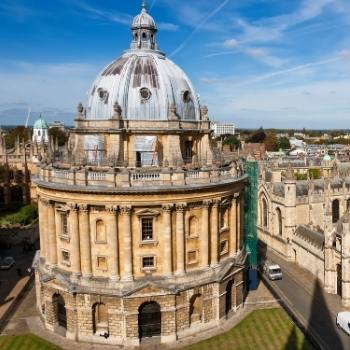
ONE DAY IN OXFORD ITINERARY – BEST THINGS TO SEE AND DO

COTSWOLDS TRAVEL GUIDE
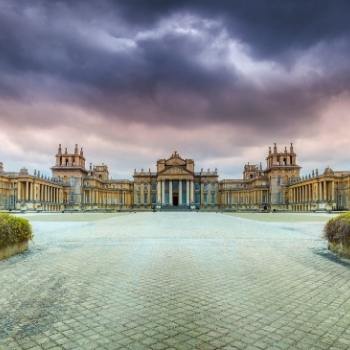
VISITING BLENHEIM PALACE
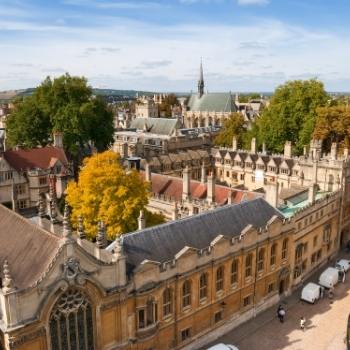
BEST PLACES TO STAY IN OXFORD
Find more special stays in my Accommodation Guide for England.
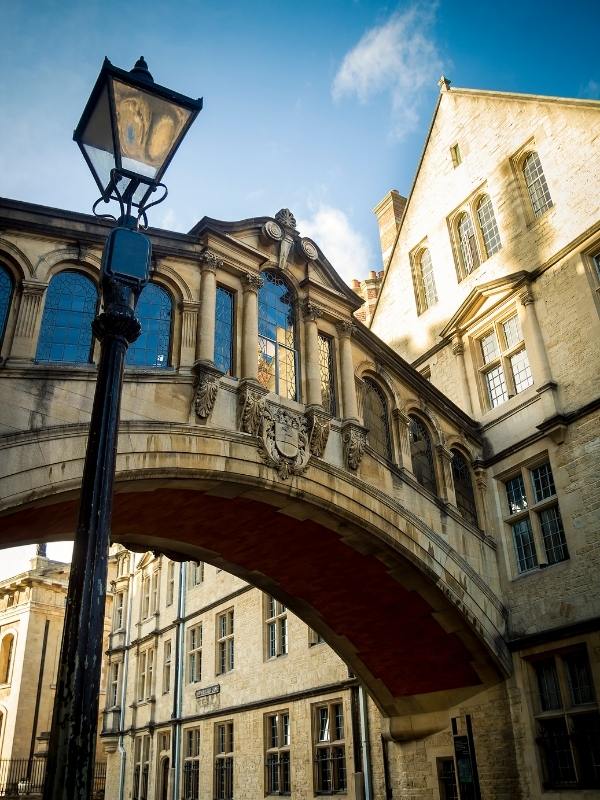
There are numerous walking tours of Oxford available. Choose the tour that interests you the most – for fans of Inspector Morse and Harry Potter there are excellent themed tours available.
If you prefer to tour the city with a university graduate this is also possible and a great way to learn about life for students at this hallowed university.
- University and City Walking Tour with Alumni Guide – Learn about life at the prestigious university from your student guide. This tour is also available as a private walking tour if you prefer to customise your tour.
- Making of Harry Potter Tour – Explore Oxford through the eyes of Harry Potter and other characters from the Harry Potter movies on a 1.5 to 2-hour tour. Discover how student life at Hogwarts compares with an Oxford education. Test your knowledge with a Potter-mania quiz.
- Morse, Lewis and Endeavour Walking Tour of Oxford – Follow in the footsteps of the fictional Inspector Morse and his sidekick Lewis on a TV locations tour of Oxford. See sites from the books and TV shows created by the author Colin Dexter.
- Private Punting Trip with Optional Walking Tour – Enjoy a relaxing 1-hour outing on the river and learn all about Oxford university, student life, and its proud rowing traditions. Have the option to also add on a guided walking tour afterward.
Oxford is the perfect base for day trips to surrounding areas including the Cotswolds and UNESCO World Heritage Site of Blenheim Palace.
I have handpicked the best tours available from Oxford through Get Your Guide (we book most of our day tours and organised activities through Get Your Guide due to their great customer service and cancellation policy)
- Cotswold Explorer Full-Day Tour – Take an unforgettable drive through the glorious Cotswolds, visiting sleepy stone villages, hidden valleys, and breathtaking scenery. Enjoy hearing the history and stories of the old wool and market towns and browsing in the quirky shops and cafes.
- Cotswolds & Blenheim Palace Small-Group Tour – Meander through the quaint villages of Burford and Bourton-on-the-Water, and explore the rich history of Blenheim Palace.
- Blenheim Palace Guided Tour – Enjoy a guided tour of one of England’s most famous palaces and gardens and home to the Churchill family and Duke of Marlborough. Learn about the events which led to the creation of Blenheim Palace. Enjoy a private tour for a maximum of 4 persons.
Oxford is proud of its literary heritage and connections with many famous authors who have studied or taught at one of its colleges. To fully appreciate and enjoy your visit to Oxford we recommend reading some of their works.
These include
- Lewis Carroll
- Oscar Wilde
- JRR Tolkien
- John Betjeman
- Philip Pullman
This guide will have provided inspiration plus practical information to help plan your visit to Oxford. You will find more inspiration and ideas to help plan your travels around England in these travel guides:
- Devon Travel Guide (including tips, itinerary + map)
- Liverpool Travel Guide (including tips, itinerary & map)
- York Travel Guide (including essential travel tips, itinerary + map)
- Peak District Travel Guide
- Lake District Travel Guide
- 10 virtual tours of famous landmarks in the UK
Looking for more inspiration for your travels in England? Check out my England Travel Planning Guide which has lots of ideas, tips and resources to plan your itinerary.
Travel Policy
This policy has been developed as part of the wider environmental sustainability strategy and applies to all business travel from 1 august 2022..
While the University recognises that some travel is necessary for learning, teaching, and research, this policy aims to reduce the environmental impact of travel. The policy was developed after extensive consultation and a pilot rollout in five departments.
It includes
- encouraging virtual alternatives to travel
- encouraging a shift from flights to rail
- eliminating 20% of flights by 2024/25
- charging a flight levy on University business travel
Money raised through the flight levy is allocated to the Oxford Sustainability Fund to finance the implementation of the Environmental Sustainability Strategy. We will use offsetting from 2034 onwards to offset the University’s residual carbon emissions and biodiversity impact and achieve the strategy’s 2035 targets. This approach of prioritising reducing emissions to minimise offsetting is in line with the Oxford Offsetting Principles .
Below you will find a summary of the policy. The full policy can be downloaded from this page.
Review our policy
DOWNLOAD PDF
Sustainable Travel team
+44 (0)1865 6 14814
Related links
- Environmental Sustainability Strategy
- Travelling for work
IT Services - Service catalogue
Travel insurance application and registration service (tirs).
TIRS is an online portal for submitting and processing travel insurance applications and registering travel details
Travellers need to use Single Sign On to access this Service
Getting help
* except bank holidays and University closure days
How do I...?
I want to..., raise a support call, request training, request access, make a service request, more information.
Free to Oxford users
Related Services
- Teaching & Library Information
- Administration & Finance
- Personnel & HR
- Governance & Policy
- Website Content Management & Comms
- Staff Wellbeing
Key Travel: online booking
How to book travel & accommodation
The University's preferred supplier for travel is Key Travel . You can book airline or train tickets or hotel accommodation with Key Travel and the cost will be invoiced directly to the Faculty. By using Key Travel you can avoid paying for bookings personally and reclaiming through the expenses claim process. Key Travel also have access to preferential academic fares with some airlines.
The University's dedicated Key Travel reservations team can be contacted on: 01618 199763 or [email protected] . Once a preferred itinerary has been identified you will be emailed a quote by Key Travel. You will need to forward this email to a member of the Finance Team or your Centre Administrator who can raise a purchase order (PO). Please remember to include in the email details of the budget being used to fund the travel e.g. a project number or RSF award reference. Your booking will only be finalised once the PO reference has been passed on to Key Travel.
Key Travel on-line booking service
All staff can also be given access to the Key Travel online booking service which allows you to search for flights, train fares and hotel accommodation. Travellers place their preferred option in the "basket" and share the provisional booking with a member of the Finance Team or the appropriate course or centre administrator by selecting their email from a drop-down list within the Key Travel website. The administrator who has been sent the provisional booking can approve the purchase by raising a PO and completing the process online, the booking is confirmed and travel documents are emailed to the traveller. The Faculty will be invoiced drectly for the travel.
If you would like access Key Travel online bookings please email the Faculty Head of Finance and you will be sent log-in details, usually on the next day.
Before making your first booking you may find it useful to access an online user guide .
Please bear in mind that bookings will usually be held for a maximum of 24 hours so make sure you "shop" for your travel during normal working hours when admin staff will be available to process the booking. Ideally, bookings should be shared early in the day giving administrators time to deal with the request and raise a PO before the booking expires.
On this page
Related websites.
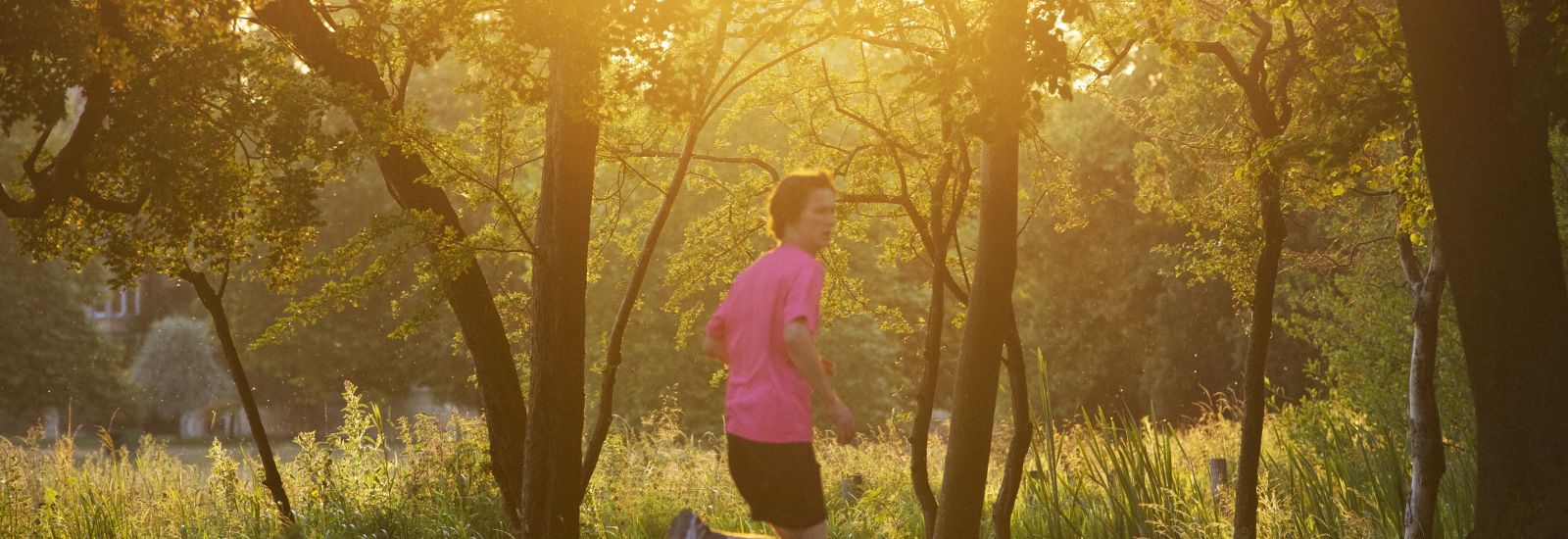
Study, work and travel abroad
These exchanges, summer schools and other study abroad opportunities give you the chance to enhance your studies during or outside of term time. Alternatively, you may choose to pursue a study abroad opportunity after you finish your Oxford degree.
Opportunities on offer
Some of these opportunities are organised and funded by the University of Oxford, while others are run by affiliated institutions. Please follow the links below for details of the programmes on offer and their application processes.
Oxford study abroad/exchanges
Travel grants and expeditions, summer programs, other opportunities, systems & services.
Access Student Self Service
- Student Self Service
- Self Service guide
- Registration guide
- Libraries search
- OXCORT - see TMS
- GSS - see Student Self Service
- The Careers Service
- Oxford University Sport
- Online store
- Gardens, Libraries and Museums
- Researchers Skills Toolkit
- LinkedIn Learning (formerly Lynda.com)
- Access Guide
- Lecture Lists
- Exam Papers (OXAM)
- Oxford Talks
Student Fees and Funding 4 Worcester Street Oxford OX1 2BX Email: [email protected]
Latest student news
CAN'T FIND WHAT YOU'RE LOOKING FOR?
Try our extensive database of FAQs or submit your own question...
Ask a question
- Search Menu
Sign in through your institution
- Browse content in Arts and Humanities
- Browse content in Archaeology
- Anglo-Saxon and Medieval Archaeology
- Archaeological Methodology and Techniques
- Archaeology by Region
- Archaeology of Religion
- Archaeology of Trade and Exchange
- Biblical Archaeology
- Contemporary and Public Archaeology
- Environmental Archaeology
- Historical Archaeology
- History and Theory of Archaeology
- Industrial Archaeology
- Landscape Archaeology
- Mortuary Archaeology
- Prehistoric Archaeology
- Underwater Archaeology
- Urban Archaeology
- Zooarchaeology
- Browse content in Architecture
- Architectural Structure and Design
- History of Architecture
- Residential and Domestic Buildings
- Theory of Architecture
- Browse content in Art
- Art Subjects and Themes
- History of Art
- Industrial and Commercial Art
- Theory of Art
- Biographical Studies
- Byzantine Studies
- Browse content in Classical Studies
- Classical History
- Classical Philosophy
- Classical Mythology
- Classical Literature
- Classical Reception
- Classical Art and Architecture
- Classical Oratory and Rhetoric
- Greek and Roman Epigraphy
- Greek and Roman Law
- Greek and Roman Papyrology
- Greek and Roman Archaeology
- Late Antiquity
- Religion in the Ancient World
- Digital Humanities
- Browse content in History
- Colonialism and Imperialism
- Diplomatic History
- Environmental History
- Genealogy, Heraldry, Names, and Honours
- Genocide and Ethnic Cleansing
- Historical Geography
- History by Period
- History of Emotions
- History of Agriculture
- History of Education
- History of Gender and Sexuality
- Industrial History
- Intellectual History
- International History
- Labour History
- Legal and Constitutional History
- Local and Family History
- Maritime History
- Military History
- National Liberation and Post-Colonialism
- Oral History
- Political History
- Public History
- Regional and National History
- Revolutions and Rebellions
- Slavery and Abolition of Slavery
- Social and Cultural History
- Theory, Methods, and Historiography
- Urban History
- World History
- Browse content in Language Teaching and Learning
- Language Learning (Specific Skills)
- Language Teaching Theory and Methods
- Browse content in Linguistics
- Applied Linguistics
- Cognitive Linguistics
- Computational Linguistics
- Forensic Linguistics
- Grammar, Syntax and Morphology
- Historical and Diachronic Linguistics
- History of English
- Language Acquisition
- Language Evolution
- Language Reference
- Language Variation
- Language Families
- Lexicography
- Linguistic Anthropology
- Linguistic Theories
- Linguistic Typology
- Phonetics and Phonology
- Psycholinguistics
- Sociolinguistics
- Translation and Interpretation
- Writing Systems
- Browse content in Literature
- Bibliography
- Children's Literature Studies
- Literary Studies (Asian)
- Literary Studies (European)
- Literary Studies (Eco-criticism)
- Literary Studies (Romanticism)
- Literary Studies (American)
- Literary Studies (Modernism)
- Literary Studies - World
- Literary Studies (1500 to 1800)
- Literary Studies (19th Century)
- Literary Studies (20th Century onwards)
- Literary Studies (African American Literature)
- Literary Studies (British and Irish)
- Literary Studies (Early and Medieval)
- Literary Studies (Fiction, Novelists, and Prose Writers)
- Literary Studies (Gender Studies)
- Literary Studies (Graphic Novels)
- Literary Studies (History of the Book)
- Literary Studies (Plays and Playwrights)
- Literary Studies (Poetry and Poets)
- Literary Studies (Postcolonial Literature)
- Literary Studies (Queer Studies)
- Literary Studies (Science Fiction)
- Literary Studies (Travel Literature)
- Literary Studies (War Literature)
- Literary Studies (Women's Writing)
- Literary Theory and Cultural Studies
- Mythology and Folklore
- Shakespeare Studies and Criticism
- Browse content in Media Studies
- Browse content in Music
- Applied Music
- Dance and Music
- Ethics in Music
- Ethnomusicology
- Gender and Sexuality in Music
- Medicine and Music
- Music Cultures
- Music and Religion
- Music and Media
- Music and Culture
- Music Education and Pedagogy
- Music Theory and Analysis
- Musical Scores, Lyrics, and Libretti
- Musical Structures, Styles, and Techniques
- Musicology and Music History
- Performance Practice and Studies
- Race and Ethnicity in Music
- Sound Studies
- Browse content in Performing Arts
- Browse content in Philosophy
- Aesthetics and Philosophy of Art
- Epistemology
- Feminist Philosophy
- History of Western Philosophy
- Metaphysics
- Moral Philosophy
- Non-Western Philosophy
- Philosophy of Science
- Philosophy of Language
- Philosophy of Mind
- Philosophy of Perception
- Philosophy of Action
- Philosophy of Law
- Philosophy of Religion
- Philosophy of Mathematics and Logic
- Practical Ethics
- Social and Political Philosophy
- Browse content in Religion
- Biblical Studies
- Christianity
- East Asian Religions
- History of Religion
- Judaism and Jewish Studies
- Qumran Studies
- Religion and Education
- Religion and Health
- Religion and Politics
- Religion and Science
- Religion and Law
- Religion and Art, Literature, and Music
- Religious Studies
- Browse content in Society and Culture
- Cookery, Food, and Drink
- Cultural Studies
- Customs and Traditions
- Ethical Issues and Debates
- Hobbies, Games, Arts and Crafts
- Lifestyle, Home, and Garden
- Natural world, Country Life, and Pets
- Popular Beliefs and Controversial Knowledge
- Sports and Outdoor Recreation
- Technology and Society
- Travel and Holiday
- Visual Culture
- Browse content in Law
- Arbitration
- Browse content in Company and Commercial Law
- Commercial Law
- Company Law
- Browse content in Comparative Law
- Systems of Law
- Competition Law
- Browse content in Constitutional and Administrative Law
- Government Powers
- Judicial Review
- Local Government Law
- Military and Defence Law
- Parliamentary and Legislative Practice
- Construction Law
- Contract Law
- Browse content in Criminal Law
- Criminal Procedure
- Criminal Evidence Law
- Sentencing and Punishment
- Employment and Labour Law
- Environment and Energy Law
- Browse content in Financial Law
- Banking Law
- Insolvency Law
- History of Law
- Human Rights and Immigration
- Intellectual Property Law
- Browse content in International Law
- Private International Law and Conflict of Laws
- Public International Law
- IT and Communications Law
- Jurisprudence and Philosophy of Law
- Law and Politics
- Law and Society
- Browse content in Legal System and Practice
- Courts and Procedure
- Legal Skills and Practice
- Primary Sources of Law
- Regulation of Legal Profession
- Medical and Healthcare Law
- Browse content in Policing
- Criminal Investigation and Detection
- Police and Security Services
- Police Procedure and Law
- Police Regional Planning
- Browse content in Property Law
- Personal Property Law
- Study and Revision
- Terrorism and National Security Law
- Browse content in Trusts Law
- Wills and Probate or Succession
- Browse content in Medicine and Health
- Browse content in Allied Health Professions
- Arts Therapies
- Clinical Science
- Dietetics and Nutrition
- Occupational Therapy
- Operating Department Practice
- Physiotherapy
- Radiography
- Speech and Language Therapy
- Browse content in Anaesthetics
- General Anaesthesia
- Neuroanaesthesia
- Browse content in Clinical Medicine
- Acute Medicine
- Cardiovascular Medicine
- Clinical Genetics
- Clinical Pharmacology and Therapeutics
- Dermatology
- Endocrinology and Diabetes
- Gastroenterology
- Genito-urinary Medicine
- Geriatric Medicine
- Infectious Diseases
- Medical Toxicology
- Medical Oncology
- Pain Medicine
- Palliative Medicine
- Rehabilitation Medicine
- Respiratory Medicine and Pulmonology
- Rheumatology
- Sleep Medicine
- Sports and Exercise Medicine
- Clinical Neuroscience
- Community Medical Services
- Critical Care
- Emergency Medicine
- Forensic Medicine
- Haematology
- History of Medicine
- Browse content in Medical Dentistry
- Oral and Maxillofacial Surgery
- Paediatric Dentistry
- Restorative Dentistry and Orthodontics
- Surgical Dentistry
- Browse content in Medical Skills
- Clinical Skills
- Communication Skills
- Nursing Skills
- Surgical Skills
- Medical Ethics
- Medical Statistics and Methodology
- Browse content in Neurology
- Clinical Neurophysiology
- Neuropathology
- Nursing Studies
- Browse content in Obstetrics and Gynaecology
- Gynaecology
- Occupational Medicine
- Ophthalmology
- Otolaryngology (ENT)
- Browse content in Paediatrics
- Neonatology
- Browse content in Pathology
- Chemical Pathology
- Clinical Cytogenetics and Molecular Genetics
- Histopathology
- Medical Microbiology and Virology
- Patient Education and Information
- Browse content in Pharmacology
- Psychopharmacology
- Browse content in Popular Health
- Caring for Others
- Complementary and Alternative Medicine
- Self-help and Personal Development
- Browse content in Preclinical Medicine
- Cell Biology
- Molecular Biology and Genetics
- Reproduction, Growth and Development
- Primary Care
- Professional Development in Medicine
- Browse content in Psychiatry
- Addiction Medicine
- Child and Adolescent Psychiatry
- Forensic Psychiatry
- Learning Disabilities
- Old Age Psychiatry
- Psychotherapy
- Browse content in Public Health and Epidemiology
- Epidemiology
- Public Health
- Browse content in Radiology
- Clinical Radiology
- Interventional Radiology
- Nuclear Medicine
- Radiation Oncology
- Reproductive Medicine
- Browse content in Surgery
- Cardiothoracic Surgery
- Gastro-intestinal and Colorectal Surgery
- General Surgery
- Neurosurgery
- Paediatric Surgery
- Peri-operative Care
- Plastic and Reconstructive Surgery
- Surgical Oncology
- Transplant Surgery
- Trauma and Orthopaedic Surgery
- Vascular Surgery
- Browse content in Science and Mathematics
- Browse content in Biological Sciences
- Aquatic Biology
- Biochemistry
- Bioinformatics and Computational Biology
- Developmental Biology
- Ecology and Conservation
- Evolutionary Biology
- Genetics and Genomics
- Microbiology
- Molecular and Cell Biology
- Natural History
- Plant Sciences and Forestry
- Research Methods in Life Sciences
- Structural Biology
- Systems Biology
- Zoology and Animal Sciences
- Browse content in Chemistry
- Analytical Chemistry
- Computational Chemistry
- Crystallography
- Environmental Chemistry
- Industrial Chemistry
- Inorganic Chemistry
- Materials Chemistry
- Medicinal Chemistry
- Mineralogy and Gems
- Organic Chemistry
- Physical Chemistry
- Polymer Chemistry
- Study and Communication Skills in Chemistry
- Theoretical Chemistry
- Browse content in Computer Science
- Artificial Intelligence
- Computer Architecture and Logic Design
- Game Studies
- Human-Computer Interaction
- Mathematical Theory of Computation
- Programming Languages
- Software Engineering
- Systems Analysis and Design
- Virtual Reality
- Browse content in Computing
- Business Applications
- Computer Security
- Computer Games
- Computer Networking and Communications
- Digital Lifestyle
- Graphical and Digital Media Applications
- Operating Systems
- Browse content in Earth Sciences and Geography
- Atmospheric Sciences
- Environmental Geography
- Geology and the Lithosphere
- Maps and Map-making
- Meteorology and Climatology
- Oceanography and Hydrology
- Palaeontology
- Physical Geography and Topography
- Regional Geography
- Soil Science
- Urban Geography
- Browse content in Engineering and Technology
- Agriculture and Farming
- Biological Engineering
- Civil Engineering, Surveying, and Building
- Electronics and Communications Engineering
- Energy Technology
- Engineering (General)
- Environmental Science, Engineering, and Technology
- History of Engineering and Technology
- Mechanical Engineering and Materials
- Technology of Industrial Chemistry
- Transport Technology and Trades
- Browse content in Environmental Science
- Applied Ecology (Environmental Science)
- Conservation of the Environment (Environmental Science)
- Environmental Sustainability
- Environmentalist Thought and Ideology (Environmental Science)
- Management of Land and Natural Resources (Environmental Science)
- Natural Disasters (Environmental Science)
- Nuclear Issues (Environmental Science)
- Pollution and Threats to the Environment (Environmental Science)
- Social Impact of Environmental Issues (Environmental Science)
- History of Science and Technology
- Browse content in Materials Science
- Ceramics and Glasses
- Composite Materials
- Metals, Alloying, and Corrosion
- Nanotechnology
- Browse content in Mathematics
- Applied Mathematics
- Biomathematics and Statistics
- History of Mathematics
- Mathematical Education
- Mathematical Finance
- Mathematical Analysis
- Numerical and Computational Mathematics
- Probability and Statistics
- Pure Mathematics
- Browse content in Neuroscience
- Cognition and Behavioural Neuroscience
- Development of the Nervous System
- Disorders of the Nervous System
- History of Neuroscience
- Invertebrate Neurobiology
- Molecular and Cellular Systems
- Neuroendocrinology and Autonomic Nervous System
- Neuroscientific Techniques
- Sensory and Motor Systems
- Browse content in Physics
- Astronomy and Astrophysics
- Atomic, Molecular, and Optical Physics
- Biological and Medical Physics
- Classical Mechanics
- Computational Physics
- Condensed Matter Physics
- Electromagnetism, Optics, and Acoustics
- History of Physics
- Mathematical and Statistical Physics
- Measurement Science
- Nuclear Physics
- Particles and Fields
- Plasma Physics
- Quantum Physics
- Relativity and Gravitation
- Semiconductor and Mesoscopic Physics
- Browse content in Psychology
- Affective Sciences
- Clinical Psychology
- Cognitive Psychology
- Cognitive Neuroscience
- Criminal and Forensic Psychology
- Developmental Psychology
- Educational Psychology
- Evolutionary Psychology
- Health Psychology
- History and Systems in Psychology
- Music Psychology
- Neuropsychology
- Organizational Psychology
- Psychological Assessment and Testing
- Psychology of Human-Technology Interaction
- Psychology Professional Development and Training
- Research Methods in Psychology
- Social Psychology
- Browse content in Social Sciences
- Browse content in Anthropology
- Anthropology of Religion
- Human Evolution
- Medical Anthropology
- Physical Anthropology
- Regional Anthropology
- Social and Cultural Anthropology
- Theory and Practice of Anthropology
- Browse content in Business and Management
- Business Strategy
- Business Ethics
- Business History
- Business and Government
- Business and Technology
- Business and the Environment
- Comparative Management
- Corporate Governance
- Corporate Social Responsibility
- Entrepreneurship
- Health Management
- Human Resource Management
- Industrial and Employment Relations
- Industry Studies
- Information and Communication Technologies
- International Business
- Knowledge Management
- Management and Management Techniques
- Operations Management
- Organizational Theory and Behaviour
- Pensions and Pension Management
- Public and Nonprofit Management
- Strategic Management
- Supply Chain Management
- Browse content in Criminology and Criminal Justice
- Criminal Justice
- Criminology
- Forms of Crime
- International and Comparative Criminology
- Youth Violence and Juvenile Justice
- Development Studies
- Browse content in Economics
- Agricultural, Environmental, and Natural Resource Economics
- Asian Economics
- Behavioural Finance
- Behavioural Economics and Neuroeconomics
- Econometrics and Mathematical Economics
- Economic Systems
- Economic History
- Economic Methodology
- Economic Development and Growth
- Financial Markets
- Financial Institutions and Services
- General Economics and Teaching
- Health, Education, and Welfare
- History of Economic Thought
- International Economics
- Labour and Demographic Economics
- Law and Economics
- Macroeconomics and Monetary Economics
- Microeconomics
- Public Economics
- Urban, Rural, and Regional Economics
- Welfare Economics
- Browse content in Education
- Adult Education and Continuous Learning
- Care and Counselling of Students
- Early Childhood and Elementary Education
- Educational Equipment and Technology
- Educational Strategies and Policy
- Higher and Further Education
- Organization and Management of Education
- Philosophy and Theory of Education
- Schools Studies
- Secondary Education
- Teaching of a Specific Subject
- Teaching of Specific Groups and Special Educational Needs
- Teaching Skills and Techniques
- Browse content in Environment
- Applied Ecology (Social Science)
- Climate Change
- Conservation of the Environment (Social Science)
- Environmentalist Thought and Ideology (Social Science)
- Natural Disasters (Environment)
- Social Impact of Environmental Issues (Social Science)
- Browse content in Human Geography
- Cultural Geography
- Economic Geography
- Political Geography
- Browse content in Interdisciplinary Studies
- Communication Studies
- Museums, Libraries, and Information Sciences
- Browse content in Politics
- African Politics
- Asian Politics
- Chinese Politics
- Comparative Politics
- Conflict Politics
- Elections and Electoral Studies
- Environmental Politics
- European Union
- Foreign Policy
- Gender and Politics
- Human Rights and Politics
- Indian Politics
- International Relations
- International Organization (Politics)
- International Political Economy
- Irish Politics
- Latin American Politics
- Middle Eastern Politics
- Political Methodology
- Political Communication
- Political Philosophy
- Political Sociology
- Political Behaviour
- Political Economy
- Political Institutions
- Political Theory
- Politics and Law
- Politics of Development
- Public Administration
- Public Policy
- Quantitative Political Methodology
- Regional Political Studies
- Russian Politics
- Security Studies
- State and Local Government
- UK Politics
- US Politics
- Browse content in Regional and Area Studies
- African Studies
- Asian Studies
- East Asian Studies
- Japanese Studies
- Latin American Studies
- Middle Eastern Studies
- Native American Studies
- Scottish Studies
- Browse content in Research and Information
- Research Methods
- Browse content in Social Work
- Addictions and Substance Misuse
- Adoption and Fostering
- Care of the Elderly
- Child and Adolescent Social Work
- Couple and Family Social Work
- Developmental and Physical Disabilities Social Work
- Direct Practice and Clinical Social Work
- Emergency Services
- Human Behaviour and the Social Environment
- International and Global Issues in Social Work
- Mental and Behavioural Health
- Social Justice and Human Rights
- Social Policy and Advocacy
- Social Work and Crime and Justice
- Social Work Macro Practice
- Social Work Practice Settings
- Social Work Research and Evidence-based Practice
- Welfare and Benefit Systems
- Browse content in Sociology
- Childhood Studies
- Community Development
- Comparative and Historical Sociology
- Economic Sociology
- Gender and Sexuality
- Gerontology and Ageing
- Health, Illness, and Medicine
- Marriage and the Family
- Migration Studies
- Occupations, Professions, and Work
- Organizations
- Population and Demography
- Race and Ethnicity
- Social Theory
- Social Movements and Social Change
- Social Research and Statistics
- Social Stratification, Inequality, and Mobility
- Sociology of Religion
- Sociology of Education
- Sport and Leisure
- Urban and Rural Studies
- Browse content in Warfare and Defence
- Defence Strategy, Planning, and Research
- Land Forces and Warfare
- Military Administration
- Military Life and Institutions
- Naval Forces and Warfare
- Other Warfare and Defence Issues
- Peace Studies and Conflict Resolution
- Weapons and Equipment

CDC Yellow Book 2020: Health Information for International Travel

Senior Medical Officer and Clinical Team Lead
- Cite Icon Cite
- Permissions Icon Permissions
The CDC Yellow Book offers everything travelers and healthcare providers need to know for safe and healthy travel abroad. This 2020 edition includes: country-specific risk guidelines for yellow fever and malaria, including expert recommendations and 26 detailed, country-level maps; detailed maps showing distribution of travel-related illnesses, including dengue, Japanese encephalitis, meningococcal meningitis, and schistosomiasis; guidelines for self-treating common travel conditions, including altitude illness, jet lag, motion sickness, and travelers’ diarrhea; expert guidance on food and drink precautions to avoid illness, plus water-disinfection techniques for travel to remote destinations; specialized guidelines for non-leisure travelers, study abroad, work-related travel, and travel to mass gatherings; advice on medical tourism, complementary and integrative health approaches, and counterfeit drugs; health insights around 15 popular tourist destinations and itineraries; advising travelers with specific needs, including those with chronic medical conditions or weakened immune systems, health care workers, humanitarian aid workers, long-term travelers and expatriates, and last-minute travellers; considerations for newly arrived adoptees, immigrants, and refugees.
Signed in as
Institutional accounts.
- GoogleCrawler [DO NOT DELETE]
- Google Scholar Indexing
Personal account
- Sign in with email/username & password
- Get email alerts
- Save searches
- Purchase content
- Activate your purchase/trial code
- Add your ORCID iD
Institutional access
Sign in with a library card.
- Sign in with username/password
- Recommend to your librarian
- Institutional account management
- Get help with access
Access to content on Oxford Academic is often provided through institutional subscriptions and purchases. If you are a member of an institution with an active account, you may be able to access content in one of the following ways:
IP based access
Typically, access is provided across an institutional network to a range of IP addresses. This authentication occurs automatically, and it is not possible to sign out of an IP authenticated account.
Choose this option to get remote access when outside your institution. Shibboleth/Open Athens technology is used to provide single sign-on between your institution’s website and Oxford Academic.
- Click Sign in through your institution.
- Select your institution from the list provided, which will take you to your institution's website to sign in.
- When on the institution site, please use the credentials provided by your institution. Do not use an Oxford Academic personal account.
- Following successful sign in, you will be returned to Oxford Academic.
If your institution is not listed or you cannot sign in to your institution’s website, please contact your librarian or administrator.
Enter your library card number to sign in. If you cannot sign in, please contact your librarian.
Society Members
Society member access to a journal is achieved in one of the following ways:
Sign in through society site
Many societies offer single sign-on between the society website and Oxford Academic. If you see ‘Sign in through society site’ in the sign in pane within a journal:
- Click Sign in through society site.
- When on the society site, please use the credentials provided by that society. Do not use an Oxford Academic personal account.
If you do not have a society account or have forgotten your username or password, please contact your society.
Sign in using a personal account
Some societies use Oxford Academic personal accounts to provide access to their members. See below.
A personal account can be used to get email alerts, save searches, purchase content, and activate subscriptions.
Some societies use Oxford Academic personal accounts to provide access to their members.
Viewing your signed in accounts
Click the account icon in the top right to:
- View your signed in personal account and access account management features.
- View the institutional accounts that are providing access.
Signed in but can't access content
Oxford Academic is home to a wide variety of products. The institutional subscription may not cover the content that you are trying to access. If you believe you should have access to that content, please contact your librarian.
For librarians and administrators, your personal account also provides access to institutional account management. Here you will find options to view and activate subscriptions, manage institutional settings and access options, access usage statistics, and more.
Our books are available by subscription or purchase to libraries and institutions.
- About Oxford Academic
- Publish journals with us
- University press partners
- What we publish
- New features
- Open access
- Rights and permissions
- Accessibility
- Advertising
- Media enquiries
- Oxford University Press
- Oxford Languages
- University of Oxford
Oxford University Press is a department of the University of Oxford. It furthers the University's objective of excellence in research, scholarship, and education by publishing worldwide
- Copyright © 2024 Oxford University Press
- Cookie settings
- Cookie policy
- Privacy policy
- Legal notice
This Feature Is Available To Subscribers Only
Sign In or Create an Account
This PDF is available to Subscribers Only
For full access to this pdf, sign in to an existing account, or purchase an annual subscription.

IMAGES
VIDEO
COMMENTS
We encourage all our staff to make the ultimate sustainable travel choice - walking or cycling to work and in and around Oxford. READ MORE Green Travel Fund. Green Travel Fund ... University of Oxford The Malthouse Tidmarsh Lane OX1 1NQ. Tel: 01865 278750. QUICK LINKS. News & Events. Contact us. Transport Strategy. Working with our partners.
This page will help you travel to and around the city of Oxford. Oxford is not a campus university, so once you're here you can use our interactive, searchable map of Oxford's colleges, halls, departments, libraries and museums to find your way around or download our interactive and accessible Explore Oxford University Map.You can also use Google Maps to find your way around Oxford on foot or ...
Mobile Oxford provides travel information from across the University and city to your mobile phone. The University offers an up to 10% (off the standard price) Discounted Bus Pass Scheme covering 13 or 52 week season tickets from the Oxford Bus Company (including Thames Travel) and Stagecoach Oxford Tube. Bus passes can be ordered online from ...
Travel advice. Oxford is a beautiful city with a huge amount to offer visitors of all ages and we strongly recommend a visit if you are considering applying to the University. For maps and further details about travel, please visit our Maps and directions information.
Oxford Travel Guide. Oxford is a charming, historic city located just a short ride from London. The city is famed for its prestigious university, which is one of the oldest in the world (it was founded in the 11th century). Oxford first earned fame in the Middle Ages as a hub for theological learning. It then expanded into medicine and law.
OXFORD JOURNEYS FAQs. For over 20 years, we have been proud to offer alumni the chance to explore the world through our Oxford Journeys travel programme. In the company of expert trip scholars, intrepid alumni have followed the Silk Road, gone behind the scenes at CERN, witnessed solar eclipses and visited the world's leading museums.
More information about travel to Oxford: https://www.ricksteves.com/europe/england/oxford Oxford is home to the oldest university in the English-speaking wor...
The Radcliffe Camera. The Rad Cam. The building that launched a million camera clicks. The Radcliffe Camera is an iconic piece of Oxford architecture and sits at the heart of the city of dreaming spires. Ask anyone for the top places to go in Oxford and it will be there, right at the top of the list.
The full policy can be downloaded from this page. Travel necessary for meeting the University's business needs, paid for or reimbursed by the University for staff, students or visitors. Travel that is funded by research grants must also adhere to any additional travel requirements of funders. Follow the travel hierarchy of avoid travel ...
Plan your visit to Oxford. Located only 60 miles (90 km) north-west of London in the county of Oxfordshire is the city of Oxford, home to arguably the world's most famous and prestigious university. Nicknamed the 'City of Dreaming Spires" Oxford is a compact city with many of its main sights situated close to each other.
Visiting Oxford. Oxford is a beautiful city of stunning architecture, history and culture. You'll find ancient and modern colleges, fascinating museums and galleries, and plenty of parks, gardens and green spaces in which to relax. Plus, the city centre is small enough to cover on foot, and only a few minutes walk from the main rail and coach ...
The full policy can be downloaded from this page. Starts. 1 August 2022. Intention. Reduce the environmental impact of travel. Travel on University business. Travel necessary for meeting the University's business needs, paid for or reimbursed by the University for staff, students or visitors. Travel that is funded by research grants must also ...
University Travel Insurance - Introduction. Provision of University travel insurance is in accordance with the University policy on travel (latest policy 01/08/2022). Activation of the insurance cover requires an approved application (submitted via TIRS unless otherwise indicated) and is subject to compliance with University policies and the ...
TIRS is an online portal for submitting and processing travel insurance applications and registering travel details Travellers need to use Single Sign On to access this Service ... University of Oxford Dartington House, University Offices Wellington Square Oxford OX1 2JD Tel: 01865 (2)73200. IT SERVICES QUICK LINKS. Use email; Service status;
Find the travel option that best suits you. The cheapest way to get from London Heathrow Airport (LHR) to Oxford costs only £4, and the quickest way takes just 52 mins. ... The Radcliffe Camera (Camera, meaning "room" in Latin; colloquially, "Rad Cam" or "The Camera") is a building of Oxford University, England, designed by James Gibbs in neo ...
Study abroad. As a truly global institution, the University of Oxford understands the importance of international experiences to your academic, career and personal development. There are opportunities to study, work, or undertake research in dozens of countries across the globe. For a wide range of study, exchanges and research opportunities ...
University air travel should be arranged in line with the value for money principle. This usually means economy class and wherever possible, air travel should be pre-booked through Key Travel and paid for directly through the University. ... Hire car for business travel to location outside Oxford with 2 passengers as cost of hire car is cheaper ...
What companies run services between London, England and University of Oxford, England? First Great Western Service operates a train from Paddington to Oxford hourly. Tickets cost $35-85 and the journey takes 54 min. Alternatively, Stagecoach Oxfordshire operates a bus from Victoria Station Oxford Tube to Queens Lane every 20 minutes.
The University's dedicated Key Travel reservations team can be contacted on: 01618 199763 or [email protected]. Once a preferred itinerary has been identified you will be emailed a quote by Key Travel. You will need to forward this email to a member of the Finance Team or your Centre Administrator who can raise a purchase order (PO).
Study, work and travel abroad. These exchanges, summer schools and other study abroad opportunities give you the chance to enhance your studies during or outside of term time. Alternatively, you may choose to pursue a study abroad opportunity after you finish your Oxford degree.
The CDC Yellow Book offers everything travelers and healthcare providers need to know for safe and healthy travel abroad. This 2020 edition inclu. ... Oxford University Press is a department of the University of Oxford. It furthers the University's objective of excellence in research, scholarship, and education by publishing worldwide.